![]()
"While the ultimate goal of earthly life is the experience of Self-Realization, the by-product of that realization is moksha.”
"The truth is that the Christians have not a definite or precise conception about the Holy Spirit filling a baptized Christian. If it is God, then how dare the devil approach, tempt, and seduce the hallowed or rather defied man? And, besides, what is more serious is: How can the devil chase away the Holy Ghost and settle himself in the heart of a baptized heretic or atheist? On the other hand, if the Holy Spirit means the Archangel Gabriel or some other angel, then the Christian Churches roam in a desert of superstition; for an angel is not omni-present. If this Spirit that purifies and fills a baptized Christian is God Himself, for such is their belief in the third person of the Trinity, then all the baptized Christians ought to claim themselves divine or deified! Then there is a Protestant conception of the Holy Spirit, which (or who) fills the hearts of those who, at the highest excitement and ecstasy during an inflammatory sermon of an ignorant or learned haranguer, believe themselves to become 'new-born'; yet many among them slide back and become what they were before, rogues and swindlers!"
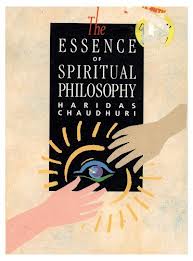
"Karma is a Sanskrit word meaning 'ction.' However, even people who have studied Hindu philosophy often have misconceptions about the true meaning and significance of the law of karma, which is a fundamental spiritual principle.
The law of karma implies that the universe is an eternal moral order. The law of karma contrasts with the mechanistic conception of material science. Science tells us the world is controlled by natural forces, specifically particles of matter combining and recombining with one another in accordance with blind physical forces...
Karma tells us that even behind these apparently blind, mechanical forces, there is a principle of cosmic intelligence, a power, which controls the operations of nature and guides the destiny of mankind.
All Eastern systems of spiritual philosophy say that when we realize the supreme spiritual truth and become integrated with absolute spirit, the bonds of karma are shattered. When the fire of illumination kindles our hearts, the bonds of karma turn to ashes. We gain full spiritual freedom and are not subject any more to external destiny. We become masters of our own destiny. Without being affected by adverse circumstances or by external forces, our lives become like lotus leaves. The lotus leaf floats on the water, but not a drop of water clings to its surface. It floats freely. Similarly, when we attain God-realization, we rise above the law of karma and are united with supreme reality.”
Dr. Haridas Chaudhuri, The Essence of Spiritual Philosophy
Thorsons Publishing Group, UK, 1990, p. 63.
"Having lived many lives, each soul seeks release from mortality, experiences the Divine directly through Self-Realization and ultimately attains moksha, liberation from the round of births and deaths.
The religions of India are unique in their knowledge of the soul's spiritual evolution through a multitude of physical incarnations. Scripture tells us this evolution culminates in Self-Realization, which, once sufficient karma is resolved, confers moksha, release from the cycle of birth and death.
Moksha, from the root mooch or moksh, has many connotations: to loose, to free, release, let loose, let go and thus also to spare, to let live, to allow to depart, to dispatch, to dismiss and even to relax, to spend, bestow, give away and open. Thus it means 'release from worldly existence or transmigration; final or eternal emancipation.' Moksha is not a state of extinction of the soul, nor of nonexistence, nor of nonconsciousness. It is perfect freedom, an indescribable state of nondifferentiation, a proximity to the Divine within. Moksha is an end to the earthly sojourn, but it may also be understood as a beginning, not unlike graduation from the university.
To reach this emancipation beyond all joy and sorrow, all difference and decay, the soul must remove, in order, the three fetters: karma, which is 'the power of cause and effect, action and reaction;' maya, which is 'the power of manifestation' sometimes called illusion; and anava, 'the power of egoity or misapprehended duality.' Once freed by God's grace from these bonds-which do not cease to exist, but no longer have the power to bind-the soul experiences nirvikalpa samadhi. This is the realization of the Self, atattva Parabrahman- timeless, formless, spaceless — a oneness beyond all change or diversity. Self-Realization is man's natural state, which each soul eventually comes to. While the ultimate goal of earthly life is the experience (or more precisely the non-experience) of Self- Realization, the by-product of that realization is moksha. These two are not synonymous.
While some sects teach that liberation comes only upon death, most embrace the state of jivanmukti, liberation in which the advanced soul unfolds its inherent perfection while alive. It is said of such a great one that 'He died before he died,' indicating the totally real, not merely symbolic, demise of the ego.
It is possible to realize the Self and still not reach the emancipated state. If this happens, the soul would return and in its next birth easily become a jivanmukta by virtue of the past realization. What distinguishes the mukta from the non-liberated is his total freedom from all selfishness and attachments, his permanent abidance in the all-pervading Divine Presence, his lucid, witnessing consciousness and his jnana, revealed in spontaneous utterances.
To attain liberation while living, the realization of the Self has to be brought through into every aspect of life, every atom of one's body. This occurs after many encounters with nirvikalpa samadhi. Through harnessing the power of sadhana and tapas, the adept advances his evolution, moving ahead ten lives or more. Only great tapasvins achieve jivanmukti, for to catalyze the death of the astral body and then revive the life forces, one must be proficient in brahmacharya, yoga, pranayama and the varied sadhanas. It is a grace, made possible by guidance of a living satguru, attained by single-minded and strong-willed efforts of yoga, worship, detachment and purification. Non-yogis may be freed at death, provided all karmas have been worked out and the Self is realized as the body is released.
Even having attained perfect liberation, a soul may consciously choose to be reborn to help others on the path. Such a one is called an upadeshi—exemplified by the benevolent satguru—as distinguished from a nirvani, the silent ascetic who abides at the pinnacle of consciousness, shunning all worldly involvement.
The concept of moksha for each Hindu sect is informed and modified by its understanding of the soul and its relationship to God. Most Hindus believe that after release from birth and death the soul will exist in the higher regions of the inner worlds where the Gods and mature beings live. Some sects contend the soul continues to evolve in these realms until it attains perfect union and merger with God. Others teach that the highest end is to abide eternally and separately in God's glorious presence...
Shaktas believe the soul is one with God Siva. The Divine Mother, Shakti, is mediatrix, bestowing this advaitic moksha on those who worship Her. Moksha is complete identification with the transcendent God Siva, achieved when the kundalini shakti power is raised through the shushumna current of the spine to the top of the head to unite with Siva. Alternatively, moksha may be conceived of as union with Devi, or with Brahman.
The state of jivanmukti in Shaktism is called kulachara, 'the divine way of life,' attained through sadhana and grace. The liberated soul is known as kaula, to whom wood and gold, life and death are the same. The kaula can move about in the world at will, even returning to earthly duties such as kingship, but nevertheless remaining liberated from rebirth as his actions can no longer bind him.
The Goddess, Devi, gives both mukti and bhukti-liberation and worldly enjoyment. Dr. S. Radhakrishnan explained one view, 'The jiva under the influence of maya looks upon itself as an independent agent and enjoyer until release is gained. Knowledge of Sakti is the road to salvation, which is dissolution in the bliss effulgence of the Supreme.'"
Satguru Sivaya Subramuniyaswami (Himalayan Academy, 1998)
Kundalini or the Energy of the Holy Spirit
"Kundalini: almost all traditions mention kundalini in some form or other and each one gives its own description of her.
Christian writings call her the 'Holy Spirit', the Chinese 'Chi' and the Japanese 'Ki'. Kundalini is the supreme Shakti, The Mother of the Universe, Shiva's spouse. She is the goal of yoga and other disciplines.'
There is nothing higher, greater, more beautiful, more sublime than the SHAKTI.
In the kingdom of Kundalini, there is no mental craziness or physical diseases. Thousands of texts have quoted Her, but in a hidden form such as the burning bush, the tongue of fire, the snake, Mercury's caduceus, the tree of life, etc.
But with time, even non-Achieved Beings heard of this secret. Some movements or sexo-tantric and lamaic sects distorted the tradition and perverted the cult and sublime teachings.
Today, tons of books are available in bookstores but none will arouse Kundalini in you... People are infuriated. Intellectually, they know lots of things but their Kundalini does not rise up. Kundalini is the female principle of God, Divine Mother, Adi Shakti, the Holy Spirit.”
www.e-kundalini.net
What is Shaktipat?
"Shakti is the energy of creation, also known as Kundalini. Shakti energy is the Grace of God, which flows through each of us. 'Pat' is Sanskrit for descent. Shaktipat literally translated means descent of grace.
In Christian teachings, this is known as transmission of the Holy Spirit. This is what is spoken of in the Bible as being 'baptized with fire'. When one has the Holy Spirit awakened within them, they are then able to feel God directly. This is the process of Kundalini, which is another word for the Holy Spirit.
Shaktipat has traditionally been given in Eastern traditions where Kundalini is widely known, revered and experienced by many. Since Kundalini has been relatively unknown in the west, there hasn't been a model for it's transmission. Shaktipat is the grace bestowing power of the Holy Spirit that works in and through one who has ascended the Kundalini through the crown chakra and reached self-realization. This is a natural process, which takes place energetically, through the unconditional love of the Divine.
Shaktipat is not mysterious. Nor is it reserved for a chosen few. We are each meant to know God directly. There are many people now experiencing the Kundalini energy. We are being called to awaken. We are being called home. Through our direct experience of this Divine energy within us we are transformed. We must shed our preconceptions about how we are to know God if we are to recognize the Divine presence in and through us. It is important to understand that the Shaktipat Master is not giving you something. The Master simply awakens what is already within you.”
www.cherylstoycoff.com
A Unitarian Universalistic View Of The Spirit
"People from different religions have tried to describe the spirit—itself a metaphor—with other metaphors. Jews and Christians, for example, have pictured the spirit as fire, wind, and breath, and Christians have also pictured the spirit as a dove. The hymn 'Spirit of Life' and the signs we use to accompany it contain some of this imagery: the sign for spirit evokes a fire. There's the lines 'blow in the wind' and 'wings set me free.' These images reveal some of the qualities of the spirit, telling us something about the nature of the spirit. The spirit is free and independent of human control, like a wildfire or the wind or a soaring dove. It grounds us like roots and sets us free like wings. The spirit is as intimate as our breath yet overarches all like the wings of giant bird. The spirit is unseen yet essential and very real and ever-present, like our breath. The spirit is elusive and mysterious like the wind. And like a fire, the spirit is powerful and consuming yet also at times dancing and playful.
Hindus have another picture for the spirit: the great mother goddess Shakti. Hindus picture Shakti not only as a goddess but also as a surging, creative, regenerative, non-personified, feminine energy and power pervading the world—an energy that is within us and between us and all around us.”
www.focol.org
"TULSA, OKLAHOMA, October 2, 2002:
A few years ago, Christian Evangelical Bishop, Carlton Pearson was living the typical life of a popular charismatic preacher—a growing congregation, popular conferences and award-winning CDs. But things have changed as more people learned of his 'gospel of inclusion.' In three years, his interracial congregation in Tulsa, Oklahoma, has dropped from about 4,000 to as low as 1,200. His spring 'zusa Conferences' that once took in as many as 10,000 a night didn't surpass 4,500 this year. A music company has also suspended its relationship with him, citing doctrinal differences. Pearson's belief in inclusion says simply, 'I exclude nobody from the redemptive work of the cross.'
Pearson says he thinks the focus of many of his evangelical brethren, who believe a personal confession that Jesus is savior gains one entrance to heaven, has been wrongly placed. It emphasizes what people need to do for God instead of what God has done for them, he believes. 'I believe that Jesus redeemed the entire world,' not just particular brands of Christians. Among numerous Biblical scriptures Pearson cites is 2nd Corinthians 5:18-19, which reads 'God was reconciling the world'—not just Christians—'to himself, in Christ.' While Pearson's doctrine of inclusion has motivated the evangelical community to no longer support his church, he has drawn more positive reactions from people whose paths he rarely crossed before. 'I'm absolutely thrilled,' said Sheryl Siddiqui, community relations chairwoman for the Islamic Society of Tulsa. She says Pearson's comments are refreshing in a community that has often been divided by religion. Pearson, who thinks his inclusive message is the way to world peace, said he told the Jewish leaders who asked about his interest in evangelism, 'I don't want to convert anybody. I just want to convince everybody.'
Pearson has marveled at the range of responses, which he said have included invitations to consider membership in Episcopal, Orthodox and New Age organizations. 'My Jewish friends, my Hindu friends, my Muslim friends are saying to me, O Mr. Pearson, we don't have problem with Jesus,' he said, affecting a foreign-sounding voice. 'It is his followers ... we don't understand.'"
Religion News Service
"The Christian conception of the Holy Spirit is entirely different from the Islamic and the Jewish. The Holy Spirit is not a divine person with divine attributes and functions not belonging to this or that other divine persons of a triple god. The Christian belief that this same holy ghost, the third divine person, descends from his (or her, or its) heavenly throne at the bidding of every priest - in his daily celebration of some sacrament - to consecrate its elements and change their essence and qualities into some supernatural elements is extremely repugnant to the religious sentiments of every Unitarian, whether Jew or Muslim. Nothing could horrify a Muslim's feeling more than the belief that the Holy Spirit - always at the intervention of a priest - changes the water of baptism into the blood of a crucified god and blots out the so-called original sin; or a belief that the magic operation upon the material elements of the Eucharist transubstantiates them into the blood and body of an incarnate god. These beliefs were absolutely opposed to the teachings of the Old Testament and a falsification of the real doctrine of John and Jesus. The Christian assertion that the Holy Spirit at the incantations of a priest, fills certain individuals and sanctifies them, but does not guarantee their impeccability and ignorance, is meaningless...
Think of the belief that the third person of the trinity descends upon men, sanctifies them, and then allows them to fall into error, heresy, and atheism, and abandons them to commit murderous wars and massacres. Is this possible? Can the devil seduce a man filled with and guarded by the Holy Ghost and change him into a demon? ...
We cannot believe, nor even imagine for a moment, that a worshiper of God, a righteous believer who has received the Spirit of sanctification, can fall into a deadly sin and perish in Hell. No, a holy person, so long as he is in this material world, is to combat and struggle against sin and evil; he may fall, but he will rise again and shall never be abandoned by the pure Spirit that guards him. True repentance is the work of the good Spirit that lives in us. If a Christian is baptized with the Holy Spirit and fire, in the sense which the book of the 'cts of the Apostles' describes and the Churches accept, then every baptized Latin, Greek, or Abyssinian must not only become a sinless saint but also a linguist and a polyglot prophet!
The truth is that the Christians have not a definite or precise conception about the Holy Spirit filling a baptized Christian. If it is God, then how dare the devil approach, tempt, and seduce the hallowed or rather defied man? And, besides, what is more serious is: How can the devil chase away the Holy Ghost and settle himself in the heart of a baptized heretic or atheist? On the other hand, if the Holy Spirit means the Archangel Gabriel or some other angel, then the Christian Churches roam in a desert of superstition; for an angel is not omni-present. If this Spirit that purifies and fills a baptized Christian is God Himself, for such is their belief in the third person of the Trinity, then all the baptized Christians ought to claim themselves divine or deified!
Then there is a Protestant conception of the Holy Spirit, which (or who) fills the hearts of those who, at the highest excitement and ecstasy during an inflammatory sermon of an ignorant or learned haranguer, believe themselves to become 'new-born'; yet many among them slide back and become what they were before, rogues and swindlers!"
Haytham El Shaffe
Sbghatulla, Or The Baptism With The Holy Spirit And Fire
Logion 1: "Whoever lives the interpretation of these words will no longer taste death.”

Shri Mataji Nirmala Devi was
Christian by birth, Hindu by
marriage, and Paraclete by duty.
"The Paraclete represents direct,
intimate divine intervention,
supporting and teaching
believers and challenging the
world, as Jesus did.” (D. Stevick
Jesus and His Own, 2011, 290)
The Paraclete Shri Mataji
To Achieve Complete Freedom, Cabella, Italy—May 7, 1995
"Birth, play, marriage, children, old age — life is finished. That is not living! Life is much deeper and more wonderful... When you know God there is no more sorrow.
All those you loved and lost in death are with you again in Eternal Life. The souls of those loved ones who departed before will come to welcome: fathers, mothers, wives, children, friends. Hundreds and thousands and millions of them! From hundreds and thousands and millions of past lives and rebirths! From hundreds and thousands and millions of millenniums ago! How many wives we must have had in previous lives and how many husbands God alone knows.”
The Paraclete Shri Mataji
London, U.K.—June 21, 1981
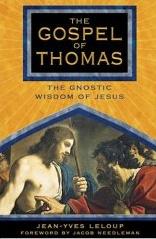
LOGION 1
Yeshua said:
Whoever lives the interpretation of these words
will no longer taste death.
(CF. JOHN 5:24, 8:51-52; MATT 13;10-15.)
Hermeneutics, or the art of interpretation, implies something more
than exegesis, which often limits itself to reconstructing the
context of a scripture in order to explain its structure and meaning—
and forgets to look for deeper Meaning. It is like measuring the
structure and thickness of the shell and forgetting to taste the
almond inside it.
Hermeneutists[1] are thirsty for Meaning and are not as interested in
the color and form of the water jug as they are drinking at the
Source that is accessible through the words. To be a hermeneutist in
this sense means to live the interpretation of the logia of Yeshua.
It means to become One—if only for a moment—with that Meaning. This
moment of unity awakens in us the Presence of the Uncreated and the
taste of something beyond that which is composite and therefore
subject to decomposition—in other words, the taste of something
beyond death.
There are different ways of interpreting a piece of music. Players
sometimes do a disservice to the composer through their lack of
inspiration or by using a badly tuned instrument, for instance. But
the highest priority in the hermeneutical art is an awareness of the
spirit in which we are interpreting the word in question. Is this
spirit in harmony, in resonance, with the Life that breathes in the
text that we are trying to translate? Of course, we must also have a
good instrument, knowledge, and a cultivated intelligence and feeling
so as to perceive all the harmonies of this subtle text.
The greatest musicians are those who—after long practice—are able to
forget that they are interpreting. They become One with the
inspiration that moved the composer, and the music is played through
them as through an instrument.
Yeshua has become the interpreter who lives the meaning of Love and
Live through deeds as well as words. His exegesis was written not
only through his teaching, but also with his flesh, his blood, his
laughter, and his tears. Those who had eyes to see saw him the Living
One.
Jean-Yves Leloup, The Gospel of Thomas
Inner Traditions (2005) pp. 61-2
Book Description (Amazon.com)
Publication Date: February 16, 2005
A new translation and analysis of the gospel that records the actual words of Jesus
● Explores the gnostic significance of Jesus's teachings recorded in this gospel
● Explains the true nature of the new man whose coming Jesus envisioned
● Translated and interpreted by the author of the bestselling The Gospel of Mary Magdalene and The Gospel of Philip
One of the cache of codices and manuscripts discovered in Nag Hammadi, the Gospel of Thomas, unlike the canonical gospels, does not contain a narrative recording Christ's life and prophecies. Instead it is a collection of his teachings—what he actually said. These 114 logia, or sayings, were collected by Judas Didymus Thomas, whom some claim to be Jesus's closest disciple. No sooner was this gospel uncovered from the sands of Upper Egypt than scholars and theologians began to bury it anew in a host of conflicting interpretations and polemics. While some say it is a hodgepodge from the canonical gospels, for others it is the source text from which all the gospel writers drew their material and inspiration.
In this new translation of the Gospel of Thomas, Jean-Yves Leloup shows that the Jesus recorded by the"Infinitely skeptical and infinitely believing"Thomas has much in common with gnostics of non-dualistic schools. Like them, Jesus preaches the coming of a new man, the genesis of the man of knowledge. In this gospel, Jesus describes a journey from limited to unlimited consciousness. The Jesus of Thomas invites us to drink deeply from the well of knowledge that lies within, not so that we may become good Christians but so we may attain the self-knowledge that will make each of us, too, a Christ.
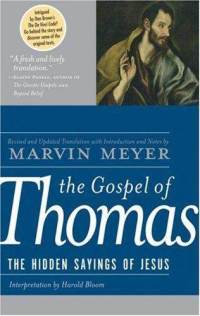
1. [Here, as in the prologue, the author uses the French word herméneute in a special sense. Because the English equivalent, herméneute, is so laden with academic connotations, I have avoided it in the gospel itself and chosen the phrase"lives the interpretation" instead of the more literal"becomes a hermeneute.”—Trans.]
1. And he said," Whoever discovers the interpretation of these sayings will not taste death.”
1.”he said": The speaker is thought most likely to be Jesus, although he could conceivably be Judas Thomas with an editorial note.
"Whoever discovers the interpretation of these sayings ...”: A similar concern for the salvific possibilities entailed in the study and interpretation of sayings is to be found in Jewish and Greco- Roman sources. Compare Sirach 39:1-3:
But one who devotes one's soul and studies the law of the Most High will seek out the wisdom of all the ancients and will be concerned with prophecies. That person will keep in mind the discourse of reputable men and will go into the subtleties of parables. That person will seek out the hidden things of proverbs and will be occupied with the enigma of parables.
In general, compare also John 8:51-52
The Gospel of Thomas: The Hidden Sayings of Jesus
Marvin Meyer, HarperOne; 2nd edition (October 9, 1992) p. 78
Editorial Reviews (Amazon.com)
The gospel according to Thomas is an ancient collection of sayings attributed to Jesus and thought to be recorded by his brother Judas, the Twin (Thomas means"twin"In Aramaic). Some scholars suggest that this gospel was collected from New Testament sayings, while others believe it springs from a completely independent author because many of the quotations are not in the New Testament at all. It slept for two millennia in a stone jar until it was accidentally exhumed by a group of fertilizer gatherers in the northern Egyptian desert in 1945. (The gospel is just one document in the fourth-century papyrus library discovered near the city of Nag Hammadi, from which the entire collection gets its name.) Marvin Meyer's distinguished translation includes Coptic text on each left page and the English translation on the right. It is considered by many to be perhaps the closest we'll ever get to reading what was actually said by the historical Jesus. In The Gospel of Thomas, you'll discover a different kind of Christ—a wandering spiritual teacher from Galilee who performs no miracles, reveals little prophecy, announces no apocalypse, and dies for no one's sins. —P. Randall Cohan
Review
"Best known of the Nag Hammadi manuscripts (a collection buried c. 370 C.E. and found accidentally by an Egyptian farmer in 1945), the Gospel of Thomas confronts readers with sayings attributed to a Jesus who seems more like a Zen master ('Split a piece of wood; I am there') than either a political messiah or incarnate god.... Many historians of religion now think the Gospel of Thomas is the nearing surviving approximation to Q, a hypothetical collection of material about Jesus believed to have been used as a source by the authors of Matthew, Mark, and Luke, the so-called 'synoptic' gospel. Thomas, however, contains no stories about Jesus, but instead consists of a compilation of 114 sayings attributed to him.... Free as it is from the encrustation of orthodoxy, the Gospel of Thomas can take the reader, as much as any book can, directly to an enigmatic teacher who walked out of Galilee two millennia ago.”—Gnosis
"Discovered among the gnostic texts found in Egypt in 1945, this gospel from Thomas gives the reader a fresh vision of Christ's teachings. Free of dogma, Zen-like wisdom graces the pages of this scholarly yet immensely readable work...superbly presented.”—NAPRA Trade Journal
"In this book an excellent, very readable translation of the Gospel of Thomas accompanies a new edition of the Coptic text and learned notes.”—Birger Pearson, University of California, Santa Barbara, Religious Studies Review
"The Gospel of Thomas, a collection of 114 sayings of Jesus, is one of the Nag Hammadi gnostic texts discovered in 1945 in upper Egypt. The collection belongs to the genre of wisdom sayings, and some of the sayings parallel those of Jesus in the synoptic gospels and Q. Professor Meyer, professor of religion at Chapman University, presents a critically established Coptic text and a new English translation on facing pages. He also provides an introduction and notes. Also included is a brief appreciation by Harold Bloom.”—Theology Digest
"Thomas tells us more about the historical Jesus than all of the Dead Sea Scrolls put together. A superb presentation of the most important early Christian text discovered in this century.”—John Dominic Crossan, author of The Historical Jesus
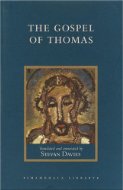
1. And he said," Whoever finds the correct interpretation of these sayings will never die.” 2
[2] Immortality is said to be the reward of anyone who successfully decodes Thomas's enigmatic sayings. The correct interpretation of the sayings is not the final goal but the means to the goal, the discovery of the Kingdom of Heaven. Thomas's Gospel is an exercise book, a list of riddles for decoding. The secret lies not in the final answers but in the effort to find the answers.
Stevan Davies & Andrew Harvey, Gospel of Thomas Annotated and Explained
Reviews, Skylights Path (2006) p. 2
Product Description (Amazon.ca)
The Gospel of Thomas—a book of sayings and wisdom of Jesus compiled as early or earlier than the New Testament gospels—can transform your spiritual life.There are many academic commentaries on the Gospel of Thomas, but this book has a different aim. It is meant to be a guidebook, that is, a translation of the sayings into daily practice. The goal of such practice is to become Jesus's twin. This does not, of course, mean becoming an olive-skinned, bearded Mediterranean peasant wearing sandals. It is more about manifesting in our lives the same Christ consciousness revealed in the person we know as Jesus of Nazareth. —from the Introduction In the decades since its discovery, the Gospel of Thomas has intrigued people of all faiths around the world. Shedding new light on the origins of Christianity, the Gospel of Thomas raises questions about whether the New Testament's version of Jesus's teachings is entirely accurate and complete. In the Gospel of Thomas we see Jesus as a wisdom-loving sage, sharing aphorisms about the value of the present and each person's role in the creation of the Kingdom of God here on earth. But these inspiring sayings can leave you wondering," What next?”Now you can learn how to start applying Jesus's wisdom to your own life—and, in turn, to the world around you. This unique guidebook leads you through Thomas, offering practices that help you translate Jesus's wisdom into a more fulfilling, enriching daily life, including: ● Becoming a Spiritual Adult ● Sorting Out the Old and the New ● Being a Healing Presence ● Daring to Be a City on a Hill ● God's Reign Calls for Ready Hands ● Spirituality Is Not Skygazing ● And much more ... Ron Miller is the chair of the Religion Department at Lake Forest College in Lake Forest, Illinois, where he has taught for thirty years, and co-founder of Common Ground, an adult education group for interfaith religious study and dialogue since 1975. Miller is the author of many books and articles, including The Gospel of Thomas: A Guidebook for Spiritual Practice, named one of Spirituality & Health's 50 Best Spiritual Books of the year; The Hidden Gospel of Matthew: Annotated & Explained and Healing the Jewish-Christian Rift: Growing Beyond Our Wounded History (all SkyLight Paths). His website is www.ronmillersworld.org. Stevan Davies is professor of religious studies at Misericordia University and has studied the non-canonical gospels and acts for over thirty years. Among his books are The Gospel of Thomas: Annotated and Explained, The Secret Book of John: The Gnostic Gospel—Annotated and Explained (both SkyLight Paths) and The Revolt of the Widows: The Social World of the Apocryphal Acts. He has also published books about the canonical Christian scriptures including New Testament Fundamentals and Jesus the Healer: Possession, Trance and the Origins of Christianity. His website (www.misericordia.edu/users/davies/thomas/thomas.htm) is a leading Internet resource on the Gospel of Thomas.
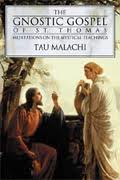
VERSE 1
These are the secret sayings which the living Jesus spoke and which Didymos Judas Thomas wrote down.
And he said," Whoever finds the interpretation of these sayings will not experience death.”
The Living Yeshua is speaking in secret, within, behind your heart. Christ dwells there within you, and when you go within, Christ will speak the secret teachings to you and lead you in the path of awakening. To listen and hear, you must be silent. You must empty yourself of yourself and let the Christ-Spirit fill you. Dying to yourself, you must be conceived and reborn of the Holy Spirit as the Living Yeshua. Indeed, you must experience the same conception, gestation, and birth as the Living Yeshua so that you also might be his twin, born of the same birth from the Holy Virgin, Mother Wisdom. Only in this way can you receive the Light-transmission from the Master and become a Gnostic yourself.
Everyone is the Living Yeshua. The ordinary person is ignorant of this, but the apostle of God knows it and lives according to the Truth and Light revealed through experience.
Likewise, the kingdom of heaven is here and now, within you and all around you. It is present within everyone. The ordinary person does not have eyes to see it, but the Gnostic perceives it and so dwells in the kingdom of God here and now.
Logos (Word) and Sophia (Wisdom) are to be found within everyone and everything, and so also within you. There, within your secret center, at the core of your being, is the Holy One of Being. The Christ-self is your true self, the self of every self and soul of every soul. All are united with him in the Sacred Unity that is God, the Father-Mother. Through him, the Holy Spirit indwells the whole of Creation. Knowing this, you will not experience death.
This is the truth that is contained in these sayings or verses, the essential reality of which they speak. The secret is openly spoken, but who can listen and hear and so receive it? Written or spoken, the secret remains a secret until it is part of your own experience. The teachings are received only when they are your own experience. Then they become a living initiation-a Light-transmission. This is the aim of the mystic, that he or she should directly experience the Living Yeshua and become as the risen Christ.
What will death mean to that one who experiences Messianic consciousness and dwells in the kingdom of God while in this life? Indeed, death will not mean what it means to the ordinary person, for that one is not so self-identified with mortal name and form, but knows oneself as an immortal Spirit, a bornless and therefore deathless Spirit. Likewise, this person knows that the kingdom of heaven is present within and all around, always-that upon death one's experience of Christ will continue in a more subtle and sublime form, having shed the physical body. With this knowledge, death is no longer death and the adversary has no power over the soul, whether in this world or in the world to come. Such a person is awakened and therefore free, having a continuity of awareness throughout all states of existence. Death will come, as it has for all prophets and saints, but it will just be an appearance of departure-a transition to another mode of existence, no more or less real than falling asleep, only to dream and awaken again. Death, for the Gnostic, is not an end as much as a new beginning. Ultimately, death has no substantial reality, but is merely a natural moment of transition. Knowing this changes everything. Meditate upon it and you will see!
Grace accomplishes this awakening and the transformation that follows it. Nothing one does accomplishes this self-realization. Yet spiritual practice and spiritual living are the conditions that allow Grace to act, without which it is unlikely that the Holy Spirit can work within and through oneself to accomplish the great work. More profoundly, spiritual practice and spiritual living are, themselves, the goal or attainment sought; so that in practicing and living according to the Truth and Light, one naturally awakens and receives the Light-transmission. It is not so much a matter of receiving something that one does not already have as much as it is creating the conditions necessary for the Word (Logos) and Wisdom (Sophia) to pour forth from within oneself. Hence, it is letting the Christ-self that is already present deep within come forward and live this life. Spiritual practice and spiritual living do just that. Practice living as Christ and you will see!
Tau Malachi, The Gnostic Gospel of St. Thomas
Llewellyn Publications (June 8, 2004) pp. 1-3
Book Description(Amazon.com)
Series: Gnostic | Publication Date: June 8, 2004
Of all the"lost"gospels of the early Christian Bible, the Gospel of St. Thomas is the most well known. According to Tau Malachi, each verse of this Holy Scripture is like an"endless well of Wisdom.”Drawing upon the Holy Kabbalah, contemporary Christian thought, and wisdom of the gnostic tradition, Malachi guides the reader into a true gnostic experience-a first-hand and completely unique exploration of the sacred secrets and spiritual insights in this important gnostic text.
Both intuitive and interactive, the gnostic approach to faith is a sacred quest for greater knowledge, understanding, and wisdom-a deeper penetration of the Mystery. This path leads to a higher degree of the enlightenment experience or gnosis. The Gnostic Gospel of St. Thomas reveals how the reader can use each verse in this scripture as a source of daily contemplation and spiritual growth, while exploring the secrets of resurrection and ascension, the true role of St. Mary Magdalene in the early church, and other mystical and magical teachings.
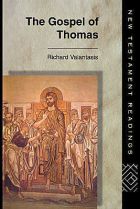
Saying 1
And he said," Whoever discovers the interpretation of these sayings will not taste death.”
It is not clear who is speaking here. The narrator is ambiguous about the source: the saying could be Jesus' first saying presenting the goal or end for listening to the secret sayings, or it could be a statement from the repositor Didymos Judas Thomas explaining his goal for recording the sayings. From either of these sources, the saying clearly provides the readers with an expected gain for proceeding to listen: discovery of the interpretation defeats death.
In the narrative world constructed by this text the task of discovering the interpretation dominates as the central and critical activity for the readers. The readers do not aim toward the discovery of Jesus, or even of the community of disciples and followers of Jesus: rather the readers aim to discover the interpretation of the sayings. By its nature," interpretation"Is communal: one person interprets a"text"or a"comment"or something else that comes from some other source, or person, or community. The readers must discover the understanding of these sayings that the community has already articulated: they are not told to interpret, but to find the interpretation. The meaning of these sayings resides in a corporate understanding provided to new readers. The social group formed of those who read and understood their sayings has already provided the interpretative focus, which the readers must uncover, discover, or recover. The readers do not create the meaning, or provide the interpretation, but through their engagement with the sayings, they will discover their already established corporate meaning.
In this narrative world, all the figures (Jesus, Didymos Judas Thomas, the narrator, and the readers) are present, active, and alive in the community. Death does not prevent Jesus from speaking or Didymos Judas Thomas from recording. Similarly, death does not inhibit the reader from interpreting the sayings or from entering the narrative world. The goal articulated in this collection of sayings, however, does not culminate in a literary development, a mere discovery of interpretation: the intent is not to create a fictive world, but to translate the fictive world into"real life," a particular and actual way of living and experiencing. Once the readers have entered that fictive world and translated their lives into it, it becomes the real world, one in which they will no longer taste death.
Just as the emphasis is on discovery rather than on the interpretation of the sayings, so is the result of that discovery an experience, rather than a state. This discovery results in"not tasting death.”It could have been abstractly put: "Whoever discovers the interpretation will achieve immortality," but it was not. Tasting death joins two unjoinable events in graphic detail: eating is a sensible activity, but in death there is no eating. The discovery of the interpretation leads to a significant and alternative way of experiencing sensible life and mortality so that in discovering the interpretation of the sayings, the people become different sorts of people"Who do not taste death.”The new understanding of self, encapsulated in this discovery, provides the primary impetus for searching the meaning of these sayings. The next saying addresses that new subjectivity.
Saying 2
Jesus said," Those who seek should not stop seeking until they find. When the find, they will be disturbed. When they are disturbed, they will marvel, and will rule over all.”
Richard Valantasis, The Gospel of Thomas
Routledge; 1 edition (June 27, 1997) pp. 54-5
Oxy 654.3b-5 [Coptic Saying 1]
And he said: "[Whoever discovers the interpretation] of these sayings will not taste [death].”
This saying presents the marketing goal: immortality. The speaker's identity remains ambivalent. Thomas could be presenting the readers with the rationale for his recording of these sayings of Jesus: he does not want the readers to experience death. Or it may be the living Jesus who presents the goal: anyone who understands the sayings of the living Jesus will never experience death. Either way, the ultimate aim remains some kind of life without death.
The deathlessness, however, comes from discovering the interpretation of the sayings. The achievement of the goal depends upon the readers', or, as they might be called now, the seekers', finding the right significance to these sayings. Not to experience death requires discovering their interpretation. The community that was posited in the Prologue, the one consisting of those who listen to the secret sayings and puzzle over their meaning, stands as the arbiter of this state without death, because interpretation involves a community's understanding and tradition of interpretation of the text. Those who enter this interpretative confederation will never die, they will be like the living Jesus speaking in the community, they will perpetuate forever the interpretation of Jesus which Thomas has recorded.”
Richard Valantasis, The Gospel of Thomas
Routledge; 1 edition (June 27, 1997) p. 32
Review (Amazon.ca)
'This is a brilliant book. The author's observations as to what the text is saying will sometimes come as an eye-opening surprise especially to those already familiar with - Thomas.'
'Valantasis has written the best commentary on the - Gospel of Thomas that has ever been written and it is hard to imagine that a better internally referential one could be written.'
'Can be strongly recommended to any reader interested in the development of early Chrstianity.' - Network
'It is pleasant when one picks up a book on an early Christian document and soon afterwards can say: This is the book I have been waiting for to recommend to my students. Such is my reaction to this book ... The syle in which Valantasis writes is clear and concise ... a good and useful work that deserves praise ...' - Thomas O'Loughlin, Heythrop Journal
Product Description
This volume offers the first full commentary on the Gospel of Thomas, a work which has previously been accessible only to theologians and scholars. Valantasis provides fresh translations of the Coptic and Greek text, with an illuminating commentary, examining the text line by line. He includes a general introduction outlining the debates of previous scholars and situating the Gospel in its historical and theological contexts.
The Gospel of Thomas provides an insight into a previously inaccessible text and presents Thomas' gospel as an integral part of the canon of Biblical writings, which can inform us further about the literature of the Judeo-Christian tradition and early Christianity.
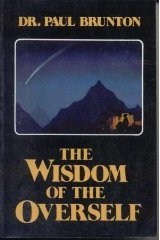
"The master key to understanding the psychological experience of death is to keep in view its identity with dream or sleep. Mind is immortal. It remains untouched despite the body's dissolution. We have no more reason to fear its death when the body is destroyed than we have to fear its death when we retire to sleep at night. Sleep affects the body but leaves the mind as active as ever in dream or as potentially active as ever in deep sleep. Death works upon the human being in a somewhat similar manner and the experiences which come to the soul after the flesh has terminated its living existence are nothing else than prolonged vivid dreams or unconscious deep sleep. If we can touch and see things and people without the help of the flesh during dream, we shall certainly be able to do the same during so-called death. And if we can take a benign rest from all the fret and agitation of personal existence at a later and deeper stage of sleep, we shall certainly be able to enjoy the same rest at a later and deeper stage of death. That in us which can survive dream and sleep in the earth-world will likewise survive them in the after-world. Why then should any of us fear? If however we insist on believing that we must eventually perish which means that we insist on identifying ourself with the body-thought rather than its Thinker, then we must accept the fear and suffering which come with wrong thinking.”
Dr. Paul Brunton, The Wisdom Of The Overself
Samuel Weiser, Inc. (July 1983) p. 170
"It is the business of philosophy not to avert death, for it cannot constrain what is so inherent in the very nature of things, but to give us a clearer understanding of the significance of death, a profounder courage with which to face the final adventure and a rarer calmness with which to witness what few can escape witnessing. It reveals death to be but a change of dress, such as we have gone though many times before and will probably go through many times again. It teaches us to get away from the conventional attitude, which is based on ignorance, and to understand that both birth and death are part of the process of educating mankind. When we identify the 'I'-thought, which always arises first, solely with the body-thought, which always arises second, we turn the scale of values upside down and limit the larger factor to the lesser one. Through this initial error we not only strengthen our sorrows and increase our grief, but also fill our hearts with unnecessary fear. But when we become conscious that we 're' conscious and that this is the most direct thing of our experience, we have reached the momentous turning-point of understanding the difference between both thoughts. For the need of making this miracle - and it is nothing less - clear to our own understanding itself puts us on the right path to achieving it.
Is it not better to believe that death is the eternal friend of man and not his bitter enemy? That it comes into his existence from a beneficent source and not from an evil place? That it stays him from wandering into further evil courses? Is it not better to think with Plato that," the mere preservation and continuance of life is not the most honourable thing for men, as the populace think, but the continuance of the best life whilst we live.”Death reminds man that physical well-being 'lone' can never suffice, as it sets him free when physical burdens prove all too heavy. If it ends his cherished hopes, it also ends his worst diseases and his chronic pains. When the wife of the Chinese mystic Chuang Tzu died, he told one of his disciples: "If someone is tired, we do not pursue him with shouting and bawling. She whom I have lost has laid down to sleep for a while. To break upon her rest with the noise of lamentation would but show that I knew nothing of Nature's sovereign law.”
After 'love,' the word 'death' is the most misunderstood and most misused one in the language. Man makes much alarm when the body ceases its action but never sheds a single tear upon the millions around him who are spiritually already almost dead. His alarm is needless. When he will have answered the riddle of his living self he will have answered the riddle of his dead one. For he will then discover the grand truth that he is infinitely more than he seems. Thoughts and things will pass, but his own essence will never pass away. He is ultimately made of such stuff as reality is made of. When he shall come into consciousness of his own estate, he will not be afraid of reaching the grim terminus of earthly things. The black-coated men may thrust his heap of bones and flesh into a wooden box, but they cannot thrust 'him' therein. No grave has yet been dug that can hold a man; it can only hold his discarded decaying flesh and nothing more. For no knife has yet been made which can dissect him.”
Dr. Paul Brunton, The Wisdom Of The Overself
Samuel Weiser, Inc. (July 1983) p. 187-88
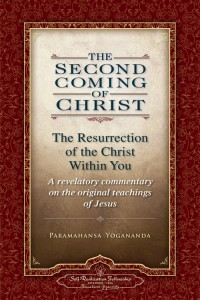
Yeshua said:
Whoever lives the interpretation of these words
will no longer taste death.
(CF. JOHN 5:24, 8:51-52; MATT 13;10-15.)
When Jesus uses the words"keep my saying"['"Whoever lives the interpretation of these words"'], he distinctly emphasizes that one has daily to live his teachings and methods of contacting the Cosmic Vibration in order to remain continuously in Christ Consciousness, free from the torpor of delusion ("death"). [1] When a man is tossing on buffeting waves, he has no time to see the whole ocean; but if he gets out of the breakers and stands on the shore, he can have a clear overall perspective. Similarly, an ordinary individual who is frantically engaged in coping with the changes affecting his body and environment cannot perceive the Immutable Infinite within him. But when the devotee removes himself from outer turmoil by meditation and tunes his consciousness with the Cosmic Vibration and Christ Consciousness within him, he beholds the Eternal Changelessness free from the changeful illusory visions of life.
[1] In 'Autobiography of a Yogi,' I quoted Jesus, with the following observation: "'If a man keep my saying (remain unbrokenly in the Christ Consciousness), he shall never see death.' In these words Jesus was not referring to immortal life in the physical body—a monotonous confinement one would hardly mete out to a sinner, much less a saint! The illumined man of whom Christ spoke is one who has awakened from the deathly trance of ignorance to Eternal Life.
Paramahansa Yogananda, The Second Coming of Christ (The Resurrection of the Christ within You) Volume II
Self-Realization Fellowship (September 15, 2004) p. 995
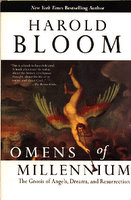
"Gnosis grants you acquaintance with a God unknown to, and remote from, this world ... a more human God than any worshipped since.”
“The experience of Gnosis is a varied phenomenon: your knowing may be
prompted by a moment of utter solitude, or by the presence of another
person. You may be reading or writing, watching an image or a tree,
or gazing only inward. Gnosis, though related both to mysticism and
to wisdom, is quite distinct from either. Mysticism, though it comes
in many kinds, by no means opposes itself to faith; perhaps indeed it
is the most intense form of faith. Wisdom, in the biblical sense, is
allied with the prophetic reception of a God who dominates our world,
which is seen having fallen away his original Creation. Gnosis grants
you acquaintance with a God unknown to, and remote from, this world,
a God in exile from a false creation that, in itself, constituted a
fall. You yourself, in knowing and being known by this alienated God,
come to see that originally your deepest self was no part of the
Creation-Fall, but goes back to an archaic time before time, when
that deepest self was part of a fullness that was God, a more human
God than any worshipped since.”
Harold Bloom, Omens of the Millennium
Riverhead Books (October 1, 1997) pp. 183-84
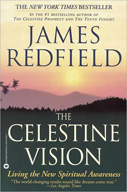
The Enlightenment Solution
We come now to another key turning point in the formation of the modern worldview. We had turned to science to discover the answers to our largest existential and spiritual questions, but science became consumed with a purely secular and material focus. Who could tell how long it would take to discover the higher meaning of human life?
Clearly, we in the West needed a new banner of meaning, a new mind-set that we could hold on to in the meantime—and more important, one that would occupy our minds. And in this moment, the collective decision seemed to be to turn our attention to the physical world completely, just as science was doing. After all, science was discovering a rich bounty of natural resources, there for the taking. And we could use these resources to improve our economic situation, to make ourselves more comfortable in this secular world of ours. We might have to wait for knowledge about our true spiritual situation, but we could make ourselves more materially secure while we were waiting. Our new philosophy, albeit temporary, was a furtherance of human progress, a commitment to bettering our lives and the lives of our children.
At the very least, this new philosophy eased our minds. The sheer weight of the work to be done kept us busy, just as it kept our attention off the fact that the mystery of death, and thus of life itself, still loomed large and unexplained. Someday, at the end of our earthly existence, we would have to face the spiritual realities, whatever they were. In the meantime, however, we narrowed our focus to the problems of everyday material existence and tried to make progress itself, personal and collective, the sole reason for our short lives. And that became our psychological stance at the beginning of the modern age.
We only have to take a quick look around at the end of the twentieth century to see the grand results of this narrow focus on material progress. In a few centuries, we explored the world, founded nations, and created a huge global system of commerce. In addition, our science has conquered diseases, developed awesome forms of communication, and sent men to the moon.
Yet all this has been accomplished at great cost. Citing progress, we have exploited the natural environment almost to the level of destruction. And personally, we can see that at a certain point our focus on the economic aspects of life became an obsession used to push away the anxiety of uncertainty. We had made secular life and progress, ruled by our logic, the sole reality we would allow into our minds.
Western culture finally began to awaken from this preoccupation in the mid-twentieth century. We stopped and looked around and began to understand where we were in history. Ernest Becker won a Pulitzer Prize for his book 'The Denial of Death'[5] because he clearly showed what the modern world had done to itself psychologically. We had narrowed our focus to material economics and for so long refused to entertain the idea of a deeper spiritual experience because we didn't want to be reminded of the great mystery that is this life.
i believe that's why old people tended to be abandoned in nursing homes. Looking at them reminded us of what we had pushed out of our consciousness. Our need to hide from the mystery that terrified us is also why a belief in a universe where synchronicity and other intuitive abilities are real has felt so foreign to our common sense. Our fear explains why, for so many years, those individuals who were experiencing mysterious synchronicity, intuition, prophetic dreams, ESP, near-death experiences, angelic contact, and all the rest—experiences that have always occurred in human existence, and even continued in the modern age—were met with so much skepticism. Talking about these experiences or even admitting that they were possible threatened our assumption that the secular world was all there was.
The Celestine Vision: 'Understanding Where We Are'
James Redfield, Bantam Australia & New Zealand, Chapter 3, p.41-43
Note: [5] E. Becker, 'The Denial of Death' (New York: Free Press, 1973).
"There should be no fear of death but on the contrary should be welcomed"

The Paraclete Shri Mataji The Way Of Our Spiritual Growth
London, U.K.—April 22, 1984
"And when you die what happens to you is a very simple thing; that you feel liberated, absolutely, and then you feel your freedom, completely, and you can decide what to do. it's all under your own guidance, your own desires, everything works out. You don't feel that you have come out of your body and this is what [I] should tell you: that there should be no fear of death but on the contrary should be welcomed because you will feel much more liberated, much more at ease.”
The Paraclete Shri Mataji To Achieve Complete Freedom, Cabella, Italy—May 7, 1995
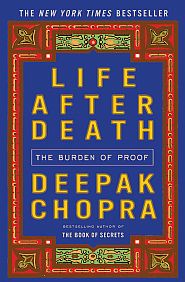
Death ended nothing; it opened up limitless adventures
"Memoir: The Life Beyond
While writing this book on the afterlife, I kept being drawn back to stories that I'd heard in India as a child. Parables are a powerful way to teach children, and many of the ones told to me have lasted all my life. So I decided to weave the book around tales of the kind I heard at home, around the temples, and at school, hoping that the reader would be enticed by a world where heroes battle darkness in order to emerge into the light.
In this case the hero is a woman, Savitri, and the enemy she must defeat is Yama, the lord of death. Yama shows up in her front yard one day, waiting to take away her husband the moment he returns from his work as a woodcutter. Savitri is terrified. What strategy could possibly turn Death away from his inexorable mission?
I had no trouble imagining these characters. I was frightened for Savitri and anxious to find out how her battle of wits with Death turned out. Their world flowed easily into my own, because the India of my childhood was not that far removed from ancient India. I want to take a moment to convey what death and the world beyond meant back then. It may seem like a very esoteric place. If so, you can come back to it after reading the main body of the book. However mysterious and exotic, here is where I began.
What was most magical in my childhood was transformation. Death itself was seen as a brief stopping point on an endless soul journey that could turn a peasant into a king and vice versa. With the possibility of infinite lifetimes extending forward and backward, a soul could experience hundreds of heavens and hells. Death ended nothing; it opened up limitless adventures. But at a deeper level, it's typically Indian not to crave permanence. A drop of water becomes vapor, which is invisible, yet vapor materializes into billowing clouds, and from clouds rain falls back to earth, forming river torrents and eventually merging into the sea. Has the drop of water died along the way? No, it undergoes a new expression at each stage. Likewise, the idea that I have a fixed body locked in space and time is a mirage. Any drop of water inside my body could have been ocean, cloud, river, or spring the day before. I remind myself of this fact when the bonds of daily life squeeze too tight.
In the West the hereafter has been viewed as a place akin to the material world. Heaven, hell, and purgatory lie in some distant region beyond the sky or under the earth. In the India of my childhood the hereafter wasn't a place at all, but a state of awareness.
The cosmos that you and I are experiencing right now, with trees, plants, people, houses, cars, stars, and galaxies, is just consciousness expressing itself at one particular frequency. Elsewhere in spacetime, different planes exist simultaneously. If I had asked my grandmother where heaven was, she would have pointed to the house we lived in, not only because it was full of love, but because it made sense to her that many worlds could comfortably inhabit the same place. By analogy, if you are listening to a concert orchestra, there are a hundred instruments playing, each occupying the same place in space and time. You can listen to the symphony as a whole or, if you wish, put your attention on a specific instrument. You can even separate out the individual notes played by that instrument. The presence of one frequency does not displace any of the others.
I didn't know it as a child, but when I walked around the crowded Delhi market where more humanity was packed into one bazaar than was possible to imagine, the world I couldn't see was even more crowded. The air that I breathed contained voices, car noises, bird songs, radio waves, X-rays, cosmic rays, and an almost infinite array of subatomic particles. Endless realities lay all around me.”
Deepak Chopra, Life After Death: The Burden of Proof
Harmony; 1 edition (October 17, 2006), pages 1-2
Great Departure
Online Items : January 1997
Exiting life, so frequently fraught with fear and trembling, can be an exalted experience
the Editor
"General George Patton of World War II fame, no stranger to personal reincarnational remembrances (he claimed to recall previous battlefield experiences as Napoleon), once observed," For Hindus death is the most exalted experience of life.”This idea is naturally hard for non-Hindus to grasp — all the more so for atheists facing Eternal Oblivion and those of Abrahamic faiths which define death as a punishment for man's sinful disobedience. To them, death is the ultimate sign of man's spiritual failure, a belief which arouses instincts of denial and injustice. One may feel penitent and guilty, not to mention uncertain about the destination ahead.
No such thoughts attend the dying days of a Hindu. Of course, there is much sadness surrounding the passing of friends and family, but that is honest acknowledgement of our loving attachments. Inside we know death is OK, natural, that the soul, even if it was less than perfect in this life, is continuing its appointed journey across life's oceanic phenomena toward Liberation and will, in time and without fail, reach the other shore. The Hindu's presumption of numerous births mitigates the tragedy of death, whether the passage is his own or another's. So, Hindus call death by lofty names — Maha Samadhi,"Great Superconscious State"And Maha Prasthana,"Great Departure.”To be near an awakened soul at the time he or she gives up the body is considered among the most blessed of opportunities. While ordinary people are remembered on their day of birth, Hindus honor enlightened souls on the day of their departure, translated in English as"liberation day.” "
Himalayan Academy, 1998
Web. Goggle cache July 15, 2011 (www.hinduismtoday.kauai.hi.us/welcome.html)
"Those who have spiritual enlightenment tell us that the basic cause of fear of death is our metaphysical or spiritual ignorance, which lies in the identification of the spirit with the body. As long as we are not aware of our true spiritual essence, of the reality of the spirit or the true self within us, it is natural that we are subjected to this fear of death.. The body is subject to the laws of nature. It is born, it grows, it attains maturity, it declines and it perishes. When we identify with this body and we have no understanding of our spiritual essence, naturally we feel that decline and eventual disintegration of the body mean our decline and destruction. So in all religions, the great spiritual geniuses have declared unequivocally that the more we know of our true spiritual essence of our being, the more we overcome the fear of death. We take a deeper perspective. We realize destruction of the body does not involve destruction of our spiritual nature, which is immortal and imperishable in character. Therefore, it is evident that the best way to conquer and overcome this fear of death is to sharpen our spiritual understanding and experience...
As the great philosopher Spinoza said, the essence of spiritual wisdom is to be able to behold life under the aspect of eternity.”
Dr. Haridas Chaudhuri, The Essence of Spiritual Philosophy
Thorsons Publishing Group, UK, 1990, p. 133-6.
.”.. 'to become the very self of every being' (BG. 5.7) does not mean the loss of a personal relationship with God, and probably with other liberated beings as well. This is in line with at least one type of Upanishadic thought typified in the dialogue between Indra and Prajapati in Chandogya Upanishad 8. The relevant passage is 8.12, 1- 3:
Bountiful One! For sure this body is mortal, held in the grip of death. Yet it is the dwelling-place of the immortal, incorporeal self. And this self, while still in the body, is held in the grip of pleasure and pain; and so long as it remains in the body there is no means of ridding it of pleasure and pain. But once it is freed from the body, pleasure and pain cannot as so much touch it.
The wind has no body. Clouds, thunder, and lightning — these too have no body. So, just as these arise from the broad expanse of space up there and plunge into the highest light, revealing themselves each in their own form, so too does this deep serenity arise out of this body and plunge into the highest light, revealing itself in its own form. Such a one is a superman (uttara purusa); and there he roves around, laughing, playing, taking his pleasure with women, chariots, or friends and remembering no more that excrescence which was his body...
Liberation is no longer the isolation of the classical Samkhya-Yoga: rather it is the end of what Christians mystics call as via purgativa, the way of the vishuddh'tma, the 'purified self' (5.7: cf. 5.11:6.12.) It is the beginning of the personal encounter of the integrated and liberated self with God.”
R.C. Zaehner, BhagavadGita
Oxford University Press, 1969, p. 234.
"But you know that you have eternal life. You can never die.”

All those you loved and lost in death are with you again in Eternal Life. The souls of those loved ones who departed before will come to welcome: fathers, mothers, wives, children, friends. Hundreds and thousands and millions of them! From hundreds and thousands and millions of past lives and rebirths! From hundreds and thousands and millions of millenniums ago! How many wives we must have had in previous lives and how many husbands God alone knows.”
The Paraclete Shri Mataji London, U.K.—June 21, 1981
"But you know that you have eternal life. You can never die. Death is not this body disappearing. Death is where you are absolutely without any control of your soul. Once you are a Realized soul you have all the control, all the Powers to take your soul wherever you feel like — to be born if you like, if you don't want you will not be born. To be born with the people, in the families, in the communities, wherever you like.”
The Paraclete Shri Mataji To Achieve Complete Freedom, Cabella, Italy—May 7, 1995
"An astral person meets a multitude of relatives, fathers, mothers, wives, husbands, children, and friends, acquired during different incarnations on earth, as they appear from time to time in various parts of the astral cosmos. He is therefore at a loss to understand whom to love especially; he learns in this way to give divine love and equal love to all beings, as children and individualized expressions of God.”
Paramahansa Yogananda, Autobiography of a Yogi
Self-Realization Fellowship (1974) p. 415.
"The resurrection of the body. Just as clear, however, is the real, indeed materialistic, significance that lies in the Christian understanding of the resurrection. A dualistic understanding of what is to be human, which assumes an essential difference between the spiritual and the material-bodily sides of human existence, necessarily leads to the idea of the immortality of the soul. According to this view, imperishableness belongs to spiritual nature alone. The Christian hope, however, does not aim at the immortality of the soul but at the resurrection of the body... This hope was expressed by Vladimir Solovyov: What help would the highest and greatest moral victory be for man, if the enemy," death," which lurks in the ultimate depth of man's physical, somatic, material sphere, were not overcome?
The goal of redemption is not separation of the spirit from the body; it is rather the new human in the entirety of the body, soul, and mind...
Although it is not an uncontroversial point, there is in the New Testament, in the observation of many, a progression of salvation in history. Indeed, there is a progress of both the individual human being and of mankind as a whole, what might be thought of under some terms and conditions as a potential for the progressive perfection of the human being. This characteristic stands out already in the proclamation of Jesus. He promises his disciples: "Then the righteous will shine like the sun in the kingdom of their Father. He who has ears let him hear.” (Matthew 14:12)... In connection with the breakthrough of the idea of evolution through Darwin in the areas of biology, zoology, and anthropology, the tendency asserted itself — above all in 19th century American theology — of interpreting the Christian history of salvation in terms of the evolution and expectation of future human perfection in the form of reaching even higher charismatic levels and even higher means of spiritual knowledge and communication.”
The New Encyclopaedia Britannica (1992)
"Death does not exist for you — It is finished... your spirit is free.”

The Paraclete Shri Mataji
"So you must know your position as eternal beings — what is your work; what is your idea; what you have to do. So one has to get rid of this idea of death because death does not exist for you; it is finished... your spirit is free.”
The Paraclete Shri Mataji To Achieve Complete Freedom, Cabella, Italy—May 7, 1995
"Religions are the expressions and experiments of Realized souls — the seers. They also talk about the inner being, second birth, and about Self-Realization. In the beginning, in India, they tried to take the attention inside by introducing symbols that they saw in this unconscious Universal Being within. This gave rise to pantheism and the aspirant's attention got stuck to symbols and to rituals which killed the main objective. So the other type of experiments of talking only about the abstract (Nirakar) gave rise to many other religions which ended as dogmas or"Isms.”The reason is obvious; talking about the flower or the honey cannot take you to the honey but can only create dogmatic "ism"In the mind. You have to be a bee to reach there, that is, you have to be reborn. This has to happen within to take you inside. It is too great an achievement and unbelievable, but I feel the search of ages has brought great results. The mind with a child-like innocence achieves very quick results. Whatever may be the loads of the mind, if the longing is honest and earnest, sooner or later the aspirant can get Self-Realization.
After reaching this state the vibrations start emitting from the extremities. These are described by Adi Sankaracarya in his work Ananda Lahari. The vibrations are the waves of Divine Love that can fill also other persons' inner being and give them the same experience of Self-Realization. The physical manifestations are as follows: The pupils of the eyes become dilated. The face becomes radiant, the body becomes light, all tension is completely removed. The rising of the Kundalini can be seen by others and felt by the aspirant. First the throbbing is clearly felt at Sahasrara and when it stops, complete silence is felt within and in all awareness. The flow of Grace is felt coming down, cooling the whole being. As the attention moves to the subtle, gross attachments drop out. A person gradually loses identification with falsehood and artificiality. In matter, he sees beauty and not its possession value. In Knowledge, he identifies himself with Truth and is not afraid to profess, nor does he indulge in the double standards of life. His flow of Love becomes spontaneous, generous, without any tinge of attachment, possession or return. The person becomes ageless — a hollow personality. Now let us see what happens inside.
The attention of the consciousness moves to the inner being. As the thread of a necklace is passing through every bead of the necklace, the Inner Consciousness is also passing through every human being. As soon as our attention moves to our Inner Consciousness we can move on to everybody's Kundalini. One starts feeling the Kundalini, its nature, its position in other persons. Collective Consciousness is thus established. Now you become a universal being. After some days you cannot say who is the other person. The Power of Love is so great and dynamic that with the movement of your fingers you can move the Kundalini of thousands. It becomes child's play.
This is how en masse evolution of human beings will take place. These are signs of the advent of the Golden Age of Truth (Satya Yuga). Let us forget whatever hardships we have suffered in our search in the past. It does not matter if some could not find it before. You have to open your mind and understand that though the discovery is unprecedented, it does not make any seeker or predecessor small. If some experiments are made it does not matter if, ultimately, we have found out the way. It is a collective achievement. Perhaps in the chaos of Kali Yuga it was to happen and many of us who have been earnestly searching in many lives, are reborn to have their promises by the Divine. Maybe we were our own predecessors.
On the Tree of Life there might have been very few flowers but now the Blossom Time has come. Their fragrance of longing has collectively materialized the manifestation of Sahaja Yoga. Many are going to jump into the Realm of Thoughtless Awareness where you get introduced to your Self and start identifying with your Universal Nature. Those who deserve will get the Throne of their Inner Being which rules the Skies of Peace, and the Oceans of Divine Love, and Supreme Knowledge within which is limitless.”
The Paraclete Shri Mataji

"Many beings remain for thousands of years in the casual cosmos. By deeper ecstasies the freed soul then withdraws itself from the little casual body and puts on the vastness of the casual cosmos. All the separate eddies of ideas, particularised waves of power, love, will, joy, peace, intuition, calmness, self-control, and concentration melt into the overjoyous Sea of Bliss. No longer does the soul have to experience its joy as an individualized wave of consciousness, but is merged in the One Cosmic Ocean, with all its waves — eternal laughter, thrills, throbs...
"When a soul finally gets out of the three jars of bodiily delusions," Master continued," it becomes one with the Infinite without any loss of individuality. Christ had won this final freedom even before he was born as Jesus. In three stages of his past, symbolized in his earth-life as the three days of his experience of death and resurrection, he had attained full power to arise in the Spirit. The undeveloped man must undergo countless earthly and astral and casual incarnations in order to emerge from his three bodies. A master who achieves this final freedom may elect to return to earth as a prophet to bring other human beings back to God, or like myself he may chose to reside in the astral cosmos. There a saviour assumes some of the burden of the inhabitants karma and thus help them to terminate their cycle of reincarnation in the astral cosmos and go on permanently to the casual spheres. Or a freed soul may enter the casual world to aid its beings to shorten their span in the casual body and thus obtain the Absolute Freedom.” "
Paramahansa Yogananda, Autobiography of a Yogi
Self-Realization Fellowship (1974) p. 420-21.
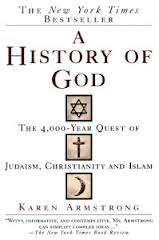
"As we approach the end of the second millennium, it seems likely that the world we know is passing away. For decades we have lived with the knowledge that we have created weapons that could wipe out human life on the planet. The Cold War may have ended, but the new world order seems no less frightening than the old. We are facing the possibility of ecological disaster. The AIDS virus threatens to bring a plague of unimaginable proportions. within two or three generations, the population will become too great for the planet to support. Thousands are dying of famine and drought. Generations before our own have felt that the end of the world is nigh, yet it does not seem that we are facing a future that is unimaginable. How will the idea of God survive in the years to come? For 4000 years it has constantly adapted to meet the demands of the present, but in our century, more and more people have found that it no longer works for them, and when religious ideas cease to be effective they fade away. Maybe God really is an idea of the past. The American scholar Peter Berger notes that we often have a double standard when we compare the past with our own time. Where the past is analyzed and made relative, the present is rendered immune to this process and our current position becomes an absolute: thus"The New Testament writers are seen as afflicted with a false sense of consciousness rooted in their time, but the analyst takes the consciousness of his time as an unmixed intellectual blessing.”Secularists of the nineteenth and early twentieth centuries saw atheism as the irreversible condition of humanity in the scientific age.
There is much to support this view. In Europe, the churches are emptying; atheism is no longer the painfully acquired ideology of a few intellectual pioneers but a prevailing mood. In the past it was always produced by a particular idea of God, but now it seems to have lost its inbuilt relationship to theism and becomes an automatic response to the experience of living in a secularized society. Like the crowd of amused people surrounding Nietzsche's madman, many are unmoved by the prospect of life without God. Others find his absence a positive relief. Those of us who have had a difficult time with religion in the past find it liberating to be rid of the God who terrorized our childhood. It is wonderful not to have to cower before a vengeful deity, who threatens us with eternal damnation if we do not abide by his rules. We have a new intellectual freedom and can boldly follow up our own ideas without pussyfooting around difficult articles of faith, feeling all the time a sinking loss of integrity. We imagine that the hideous deity we have experienced is the authentic God of Jews, Christians and Muslims and do not always realize that it is merely an unfortunate aberration.”
Karen Armstrong, A History of God
Ballantine Books, 1993, p. 377-78.

The invisible Spirit (Atma, Atman) is eternal, and the visible physical body, is transitory. The reality of these two is indeed certainly seen by the seers of truth. (2.16)
The Spirit by whom this entire universe is pervaded is indestructible. No one can destroy the imperishable Spirit. (2.17)
The physical bodies of the eternal, immutable, and incomprehensible Spirit are perishable. (2.18)
The one who thinks that the Spirit is a slayer, and the one who thinks the Spirit is slain, both are ignorant. Because the Spirit neither slays nor is slain. (2.19)
The Spirit is neither born nor does it die at any time. It does not come into being, or cease to exist. It is unborn, eternal, permanent, and primeval. The Spirit is not destroyed when the body is destroyed. (2.20)
Just as a person puts on new garments after discarding the old ones; similarly, the living entity or the individual soul acquires new bodies after casting away the old bodies. (2.22)
Weapons do not cut this Spirit, fire does not burn it, water does not make it wet, and the wind does not make it dry. The Spirit cannot be cut, burned, wetted, or dried. It is eternal, all pervading, unchanging, immovable, and primeval. (2.23-24)
The Spirit is said to be unexplainable, incomprehensible, and unchanging. Knowing the Spirit as such you should not grieve. (2.25)
The Bhagavad-Gita
"Many people ask Me questions: 'What about death?'"

So this happening that we are afraid of death is absolutely absurd for Sahaja Yogis. What is there to think even about your death? There is nothing like death for you because you have got eternal life. it's not that you continue with the same body. You may go on changing your dress but you are living, you are aware. And you know even if this body is not there you will be there, all the time. I will agree for Sahaja Yoga, for anything that is to be done in the name of Reality. So you must know your position as eternal beings, what is your work, what is your idea, what you have to do. So one has to get rid of this idea of death because death does not exist for you. It is finished... your spirit is free.
And when you die what happens to you is a very simple thing; that you feel liberated, absolutely, and then you feel your freedom completely, and you can decide what to do. it's all under your own guidance, your own desires, everything works out. You don't feel that you have come out of your body and this is what I should tell you: That there should be no fear of death but on the contrary, should be welcomed because you will feel much more liberated, much more at ease...
This body is finished is a very good idea. So troublesome it is. The most sticky thing we have is this body... So to forget about death is the easiest thing to do.”
The Paraclete Shri Mataji To Achieve Complete Freedom, May 7, 1995—Cabella, Italy
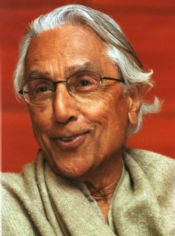
Prof. Raimon Pannikar "The Upanishads do not teach a death experience, but an experience of life. Ultimately there is no experience of death and the death experiment is, in the last analysis, unreal because the"subject"Who died was not real. The supreme Upanishadic experience is discovered precisely by realizing that the experiment of death is only a psychological experience, made by the immortal atman.
The Vedic experience is one of liberation, of freedom from everything. It thus includes freedom or liberation from time. What both fascinates and haunts Upanishadic Man is not anything that comes after, but that which has no after. As long as we are entrammeled in the net of mere temporal existence, we are in the clutches of death, even if we postpone death by a sequence of successive existences. An afterlife is as inauthentic a life as a prelife. The piercing of the skin of time as with a needle, without either hurting or destroying the spatiotemporal epidermis and yet transcending it, is what liberation is all about...
Now, the end is not death and dissolution, nor is it an indefinite and horizontal repetition of one and the same circle. One of the discoveries of the Vedic wisdom is precisely that, whereas time is circular, Man is not, so that for him it is not a question of beginning all over again. On the contrary, it is imperative that he escape the enclosure of the circle. The circularity of time indicates its ontic finitude, whereas Man is infinite. Man has to break the circularity of time in order to reach the ontological fullness of his being. To enter into this other nontemporal, but no less real, sphere is to attain realization, to reach liberation from the encirclement of time and freedom from temporal chains. It is a truly new life, not in the sense of a"recycled"life but in the sense of a new type, a new kind of life, indeed, the only real and authentic life.”
Professor Raimundo Panikkar, The Vedic Experience
http://www.cybrlink.com/vedtoc.htm
"Modern Man wonders about death and weaves innumerable theories about it; he seems to be sure about only one thing: its factual reality and thus its inevitability. In spite of startling news produced now and then by the scientific shamans of our age, contemporary Man seems at a loss when he is confronted with one of the most ancient myths of mankind: the possibility of avoiding death. Because death is seen to be inevitable, modern society tends to wipe out from the memory of the living all dealings with the dying and the dead. The fundamental Vedic attitude is almost the opposite: it does not reckon with death's inevitability and it does not try to smuggle death away from everyday life.
According to this vision, which is common to other cultures as well, death is not inevitable; it is only accidental. You die if your life is snatched away before you reach maturity, or before you marry, or if something unexpected happens to you which prevents you from achieving what you yourself or society was expecting of your life. Death is limited to this rupture, this misfortune, this accident. Thus it is always an unnatural event, and it is always akala mrtyu, untimely death.
On the other hand the old Man," the Man of long life," as the Vedas call him, the one who has lived his life, who has fulfilled his life span, his ayus, does not die; he does not experience a break and, thus, a trauma; he has simply consumed the torch and exhausted the fuel. The flame of his life goes on and it burns in his sons, his daughters, his children's children, his friends, his work, and in his ideas which are scattered to the four winds. Even his body, with its own energy, has already enriched the earth on which he has walked, the rivers in which he has bathed, and the living beings with whom he has been in communication and communion. Only the last gifts of his body and breath still remain to be given away. The old Man does not die; he simply finishes his commerce with life and achieves the transmission of all that he himself has received, as the Upanishads describe. He cancels the constitutive rna, the debt of gratitude for the gift of his existence. The natural extinction of one particular carrier of life or the completion of one's own life is not death.
Indeed, not every Man who is old in years reaches long life, maturity, and thus immortality. It is not a question of mere number of years but of growth, for which the passing of years — the hundred autumns — is certainly required but of which it is not the only condition. Time, in fact, is more than its measurement by the passing of days and seasons; it is the qualitative coefficient of human growth itself. To disentangle the immortal from the mortal, to liberate himself from the claws of death, is the task of every Man. On the one hand there is the asu or life-principle, the power of life or vital strength, which is assimilated in some traditions to the ahamkara, the selfish ego of unfulfilled desires and unachieved projects. This ego is not pure, later periods will say, inasmuch as it consists of unburnt karmas; it is this ego that is afraid of death, because it must certainly die. There is, on the other hand, the personal atman, that spark of the paramatman, which does not die. Jiva, in spite of the variety of meanings given by different schools, could also be another word for immortal Man.”
Professor Raimundo Panikkar, The Vedic Experience
http://www.cybrlink.com/vedtoc.htm
"For Hindus, death is nobly referred to as mahaprasthana," the great journey.”When the lessons of this life have been learned and karmas reach a point of intensity, the soul leaves the physical body, which then returns its elements to the earth. The awareness, will, memory and intelligence which we think of as ourselves continue to exist in the soul body. Death is a most natural experience, not to be feared. It is a quick transition from the physical world to the astral plane, like walking through a door, leaving one room and entering another. Knowing this, we approach death as a sadhana, as a spiritual opportunity, bringing a level of detachment which is difficult to achieve in the tumult of life and an urgency to strive more than ever in our search for the Divine Self. To be near a realized soul at the time he or she gives up the body yields blessings surpassing those of a thousand and eight visits to holy persons at other times. The Vedas explain," As a caterpillar coming to the end of a blade of grass draws itself together in taking the next step, so does the soul in the process of transition strike down this body and dispel its ignorance.”Aum Namah Sivaya"
Satguru Sivaya Subramuniyaswami
(Himalayan Academy, 1998, www.hinduismtoday.kauai.hi.us/welcome.html)
"The Reality is so beautiful. It is just lying ahead of us.”

And we are fragmented. That's why once you know that you are the part of that, your fragmentation goes away and you become that. You become that. Then all your sense of security is established, all your self-esteem is established, all your glory comes to you, and you start distributing it...
You are not to be disappointed my child. The Reality is so beautiful. It is just lying ahead of us. Don't be worried. Everything is going to be alright... Death does not exist. There is nothing like death. We are made of five cocoons. One of them is the cocoon of food called as Annamaikosh. That only drops out, and also a little bit of water within us also drops out. The rest of it remains.
Nothing! I wish you could die like that it is just changing of clothes you know. Like when I came from Birmingham I just changed my clothes in the hotel, and came here to be refreshed, to be new. Just like that as our clothes become dirty we change them, or become old we just change it — that's all. Death does not exist. it's a myth.”
The Paraclete Shri Mataji What are we inside, Birmingham, U.K.—August 9, 1980
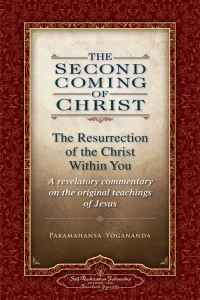
Hereafter Ye Shall See Heaven Open
Genesis in the Bible tells us of the universal becomings. In brief: "'In the beginning God created the heaven and the earth. And the earth was without form, and void' (pure consciousness, the creative thoughts of God that are the ideational causes of all beginnings)...And God said, 'Let there be light': and there was light' (the basic building block of manifested forms—the structural essence of God's triune creation: the vibratory light of thoughtrons, lifetrons, atoms)....And God said, 'Let there be a firmament in the midst of the waters' (creative elements), And let it divide the waters from the waters' (the subtle causal and astral elements from the gross physical elements). And God made the firmament' (fine vibratory etheric space providing a background for gross manifestation and serving as a curtain to divide the physical universe from the overlying astral realm), And divided the waters which were under the firmament from the waters which were above the firmament....And God called the firmament Heaven' (the astral world secreted behind etheric space)....And God said, 'Let the waters' (gross elements) 'under the heaven be gathered together into one place, and let the dry land appear' (materialization of the gross elements into a physical universe)'" (Genesis 1:1-9).
What and where is heaven?
Heaven may be said to consist, overall, of three regions: where the Heavenly Father lives in vibrationless Infinity; where Christ Intelligence reigns—omnipresent in but transcendentally untouched by vibratory creation—and in which the angels and highest evolved saints reside; and the vibratory spheres of the ideational causal world and lifetronic astral world. These heavenly realms, vibratory and transcendent, are only figuratively"Above"The gross vibrations of earth"below": They are in fact superimposed one on the other, with the finer screened from the denser manifestation through the medium and intervention of the"firmament," vibratory etheric space, hiding the astral from the physical manifestation, the causal from the astral, and the transcendent Christ and Cosmic Consciousness from the causal. Without this integration—producing a physical instrumentality empowered by astral life, guided by individualized intelligence, all arising from consciousness—there could be no meaningful manifestation.
So this earth and its beings seemingly floating in limitless space as the result of blind forces is not happenstance at all; it is highly organized.
The physical cosmos is diminutive in relation to the enormously larger and grander astral cosmos, as is the astral universe in relation to the causal—both the astral and causal heavens are permeated with the Christ Consciousness; and interlacing all is the Cosmic Consciousness of God, extending into the boundless infinity of blissful Spirit.
No one can measure Eternity. Man has yet to plumb the immensity of even this limited physical cosmos; there are untold billions of stars in the heavens that still have not been seen. The Lord has Infinitude as His space in which he dangles the intricately designed baubles of these physical, astral, and causal worlds, intriguingly reflecting as well as mysteriously hiding facets of His Immutable Being.
Different cultures and sects conceive of heaven according to their racial, social, and environmental habits of thought: a happy hunting ground; a glorious realm of endless pleasures; a kingdom with streets of gold and winged angels making celestial music on harps; ' nirvana' in which consciousness is extinguished in an everlasting peace.
Jesus said: "In my Father's house are many mansions" (John 14:2). These "many mansions"Include comprehensively the Infinitude of Spirit, the Christ Consciousness sphere, and the diverse higher and lower planes of the causal and astral realms. In general, however, the designation of heaven is relegated to the astral world, the immediate heaven relevant to beings on the physical plane.
At death of the physical body, a soul garbed in its astral form ascends to the astral heavenly level merited by the balance of that person's good and evil actions on earth. It is not by virtue of death that one becomes an exalted angel in heaven. Only those persons who become angelic in spiritual behavior and God-communion on earth are able to ascend to the higher regions. While persons of wicked deeds are attracted to astral nether regions and may experience something akin to periodic dreadful nightmares, the majority of souls awaken in a luminous land of incredible beauty, joy, and freedom, in an atmosphere of love and well-being. [1]
The astral heaven of light and beauty described
The astral kingdom is a realm of rainbow-hued light. Astral land, seas, skies, gardens, beings, the manifestation of day and night—all are made of variegated vibrations of light. Astral gardens of flowers, planted on the soil of the ether, surpass human description. The blossoms glow like Chinese star shells, ever-changing but never fading, adapting themselves to the fancy of the astral beings. They disappear when not wanted and reappear with new colors and fragrance when desired again.
Astral beings drink prismatic light from lifetronic fountains cascading from the bosom of ethereal mountains. Oceans heave with opalescent azure, green, silver, gold, red, yellow, and aquamarine. Diamond-bright waves dance in a perpetual rhythm of beauty.
Astral beings use all their subtle senses as physical man uses them in the dreamland. The difference is that inhabitants of the astral heaven consciously and at will control their surroundings. The earth is so full of decay and destruction; in the astral world, havoc caused by any clash of inharmonious vibrations could be remedied by mere willing.
The astral kingdom is many times older and longer-lived than this earth. Every physical object, form, and force has an astral counterpart. This astral heaven is veritably the factory of life, the world of life force from which this atomic universe is being created. But the heavenly manifestations haven't the limitations of earth life. Everything is vibrating energy. Though beings and objects there have form and substance and therefore seem solid, one manifestation can pass through another without collision or harm: just as with photographic techniques so many physically impossible things can be done in the movies.
Colors on the earth-plane are crude imitations of their astral source. Lifetronic colors are beyond human conception, far more beautiful than any sunset or painting or rainbow or aurora borealis. The most exquisite colors in nature, if blended together in scenic portrayal, still would not depict the beauty of the astral world; the motley physical hues are such dense vibrations of their astral counterparts. In the delicacy of the astral land, neither dull skies nor blinding sun assaults the senses. The astral luminosity dims all physical light, yet is never harsh or glaring.
The boundary of the earth is the cosmic sky. The boundary of the astral heaven is a deep circumventing nimbus, rainbow-like in the seven colors of the spectrum—diaphanous, translucent rays blended with infinite taste and beauty of the Father. within this astral firmament are the"pearly gates"referred to in Revelation 21:21. These"gates," of the luster of pearls, are the primary channels of ingress and egress between the vibratory spheres and the vibrationless realm of God, and for the movement of creative forces and souls between the astral and physical worlds. The pearly luster is the Lord's creative white light tinged with the blue of Christ Consciousness flowing into the vibratory sphere, where in the astral realm it is refracted into the multicolors of rainbow hues.
Birth and death in the astral world are merely a change in consciousness. When the physical body dies, a being loses the consciousness of flesh and becomes aware of his subtle astral form in the astral world. At a karmically predetermined time that astral being loses consciousness of his astral form to undergo rebirth in the physical world. When the astrally garbed soul leaves the astral world, at the end of its astral life, it is attracted to parents and an environment on earth (or to similar inhabited planets in other island universes) which are suited to the working-out of that individual's store of good and bad karma.
No one is born of a woman's body in the astral kingdom. There is only spiritual marriage in that realm, without cohabitation. If children are desired, they are created by inviting a soul—usually recently departed from earth—into an astral body imaged by the immaculate method of condensing the positive and negative thoughts, and will, and feeling tendencies of parents into the form of a male or female child. A predominantly positive-charged thought of lifetronic energy produces a male child, a predominantly negative-charged thought of lifetronic energy produces a female child. The form of the child, as with most astral beings, resembles that of their recently discarded earth body, but without its decrepitude.
The earth memories of astral beings gradually fade, but they meet and recognize many of their loved ones lost to them on earth—so many mothers, fathers, children, friends, spouses, of so many incarnations; it becomes difficult to isolate special feelings for one over another. The soul rejoices to embrace them all in its consciousness of universal love.
Astral beings have all the faculties of perception and cognition to which man is accustomed in his physical body, but as instruments of intuition independent of the limitations of the imperfect mortal senses and rationalizing intelligence. The astral land is thus conspicuous for the absence of books, a distinctly material omnium-gatherum for storing and transmitting man's ideas and knowledge. Astral beings can concentrate upon anything in the particular stratum to which they are assigned and know about its nature through the instantaneous knowledge-producing power of intuition. Though they need not depend on the tedious methods of book-learning, advanced beings who wish to record their special thought vibrations have only to visualize those concepts, which are then immediately transformed into a permanent record of astral light vibrations.
As there are both highly developed saints and also ordinary beings in the astral realms, they use their own degree of semi- or fully awakened intuition to complement their highly receptive astral intelligence. Only after a soul reunites with God is there no longer a need to read books or to concentrate upon anything in order to know it by intuition. The soul identified with Spirit already knows all and sees all.
Advanced astral beings can traverse any plane or region of the vast astral heaven, traveling faster than the speed of light in a vehicular mass of luminous lifetrons. Ascending to the causal heaven of ideational consciousness, the causal being transcends time and distance altogether in the instancy of thought—with every experience, consciously willed, an exquisite throb in the tranquil essence of consciousness.
Paramahansa Yogananda, The Second Coming of Christ (The Resurrection of the Christ within You) Volume I
Self-Realization Fellowship (September 15, 2004) pp. 202-6
Note:
[1] A gloriously comprehensive description of the astral and causal worlds is given in 'Autobiography of a Yogi', Chapter 43. ('Publisher's Note')
"The Gospel of Thomas does not teach superficial methods to be saved"
Mike
Marvin Meyer in his Greek Translation says," And he said," Whoever finds the interpretation of these sayings will not taste death.”The word finds has me a little worried. Go figure. Ha...because, I was wondering if the Holy Spirit was at work, the interpretations would be revealed to the person, and how they act upon them determines the"tasting of death"so to speak. What's your thoughts on that my friend?
The Gospel of Thomas Association
Mike that is a very good question. The concept of salvation in The Gospel of Thomas is in understanding the Knowledge and Truth, that is being revealed by his teachings. When one already understands that they have already inherited The Kingdom of God, and they have already the Divine within, and have conquered the ignorance of not knowing who they really are. Much like in the Gospel of John, one must have belief to be saved, therefore belief is an action by the person, if you want to add the additional dimension of the Holy Spirit indwelling, which is the Divine within, then that is fine (For Jesus does talk about the Holy Spirit in The Gospel of John and in The Gospel of Thomas).
In The Gospel of Thomas, one must come to understand what Jesus is trying to convey, and therefore, once they understand this they will not taste death, understand versus belief, these are the two methods of salvation that is being discussed, (indwelling of the Divine within-can be called Holy Spirit, if one desires to call it that). Part of that understanding is the knowledge that we are all children of the Living God, therefore if one wants to say that in a Thomasine perspective, that it is an indwelling of the Holy Spirit, that is fine, because it still points to the Divinity that is within! If one has come to realization of what Jesus said, in his original teachings, then Jesus does promise that the hidden things will be revealed!
Salvation in the Gospel of Thomas is not a difficult premise! If one comes to understand Jesus's great words, they are promised eternal life! What is that understanding you may ask? For one, the love of the one and only Creator God, and that we came from Him and were born in his Image, that is what makes it possibe to resurrrect in the here and now! Also, the realization that we are the sons and daughters of the Living God! And we are part of that Kingdom now, and will always be!
Not a very difficult concept that Jesus taught! He did not put on requirements to be saved! For if one follows Jesus, He will lead the way, Saying 108 says," Jesus said who ever drinks from my mouth, will become like me, and I myself shall become that person, and the hidden things will be reavealed to that person! It is so simple, but yet we try to make it so hard, because this teaching is completely foreign to what the Church has taught us!
Therefore, The Gospel of Thomas does not teach superficial methods to be saved, like one has to be symbolically baptized in water, or take catechism classes, or follow hundreds of rules, or go to church each Sunday, etc., No, the Gospel of Thomas says, realize that you, just like Jesus are God's Child, and these symbolic acts of spirituality are not a requirement by Jesus, just the church. You either have what is within that will save you, or you do not have that within you to save you!
Thanks Mike, for the comment! I appreciate you, good friend!
Mike
Our theology my friend might be a little different; however, I whole heartedly agree that the Bible or the GOT does not teach superficial methods to be saved, like one has to be symbolically baptized in water, or take catechism classes, or follow hundreds of rules, or go to church each Sunday, etc. Thanks for your post. I have to digest it some more. lol
The Open Secrets
by Abbot George Burke (Swami Nirmalananda Giri)
Chapter 1 of the Gospel of Thomas for Yogis
"These are the secret sayings which the living Jesus spoke and which Didymos Judas Thomas wrote down.”
(This is the sentence before the Gospel of Thomas actually begins.)...
Secret/hidden
One English translation out of many—Grondin's—renders the expression"hidden words.”The Greek work kruptos (from which we get the words crypt and cryptic) means something that is concealed or hidden because it is inside—inward. The sayings of Jesus are"secret"As far as the outer world is considered because their understanding is a matter of personal, private experience that by its nature remains hidden. And let us not forget another Greek word, mystikos, which also means inward and hidden. So we could validly say that these words of Jesus about to be given us are Mystical Sayings.
Another intriguing point about the Gospel of Thomas is the insistence of "scholars"And"experts"that these sayings are disjointed and random, following no particular pattern. This is simply not so, and a little pondering will reveal that they are definitely connected and follow a logical sequence—but a sequence that is mystical and therefore of necessity"secret"And"hidden"to those not in on the Great Secret.
And he said, 'Whoever finds the interpretation of these sayings will not experience death.'" (1)
Ironically, in the Bible the only verse that approximates this is a quotation from Jesus' enemies when they said: "Now we know that thou hast a devil. Abraham is dead, and the prophets; and thou sayest, If a man keep my saying, he shall never taste of death" (John 8:52).”I am the resurrection, and the life: he that believeth in me, though he were dead, yet shall he live: and whosoever liveth and believeth in me shall never die. Believest thou this?” (John 11:25, 26).
What is death? Also ironically, perhaps the best brief definition comes from Vine's Expository Dictionary, where life is defined as"conscious existence in communion with God," and death as"conscious existence in separation from God.” Since it is impossible for even an atomic particle to be separated from the infinite, omnipresent God, obviously what is meant is that life is consciousness of union with God and death is loss of that consciousness—the illusion of separation from God. Neither of these have anything to do with the condition—life or death—of the body. Rather, life and death are states of consciousness.
www.ocoy.org/original-christianity/the-gospel-of-thomas-for-yogis/the-open-secre\ ts/
(Logion 1): "Experience lends a new dimension to the idea of tasting death.”
Two parts to Saying 1
Posted by: Jamie Hofmeister
Saying 1 is divided into two parts, what some scholars have named the introduction or prologue and the actual first saying of Jesus. The introduction includes the first sentence which explains what the text is (secret/hidden sayings), who said them (the living Jesus) and who recorded them (Didymos Judas Thomas). The second sentence is categorized as the first saying, explaining that understanding leads one to"not taste death.”
Saying 1
Posted by: Jamie Hofmeister
These are the secret sayings that the living Jesus spoke and Didymos Judas Thomas recorded. And he said," Whoever discovers the interpretation of these sayings will not taste death.” (Translated by Stephen Patterson and Marvin Meyer gnosis.org).
(alternative translation)
These are the hidden words that the living Jesus spoke. And Didymos Judas Thomas wrote them down.
And he said," Whoever finds the meaning of these words will not taste death.”
(Uwe-Karsten Plisch, The Gospel of Thomas, tr. by G. S. Robinson).
(alternative translation based on Greek Fragments)
These are the [secret] sayings [that] the living Jesus spoke, [and Judas, who is] also
(Richard Valantasis, A window on the Gospel of Thomas).
Saying 1: Concluding Thoughts
Posted by: Jamie Hofmeister
Saying 1 is jammed with introductory material that sets the stage of what is to come in the following 114 sayings of the Gospel of Thomas. It also introduces some of the key themes or questions which will need to be wrestled with in the remainder of the text. Who is Thomas? What is Thomas' relationship to Jesus? What does it mean that Jesus is living? What is the role of knowledge or the place of experience? What does it mean to not taste death? Why is this sought after? The two sentences, sometimes divided into two different sayings, serve to introduce the reader to the world and interests of the sayings. In some ways these unanswered questions serve as a hook to draw one in, already achieving the purpose of fueling a desire for knowledge The author starts off with credentials, linking the text and Thomas directly to Jesus. Then moves onto a summation of the purpose of the following sayings: for study and reflection in order to unlock the manner to avoid tasting death. Thus in this saying the reader is oriented to major themes, purpose for continued progress, and assured that the author is credible. Pretty good two sentences.
the experience of taste
Posted by: Jamie Hofmeister
Thanks to Bryce for pointing out Thomas O. Lambdin's translation "Will not experience death"In contrast to the translations I had listed that say will not"taste death.”Experience lends a new dimension to the idea of tasting death. Taste is a personal experience, someone cannot taste for you. Touch, taste and smell seem very personal, whereas sight and sound can be second hand, someone telling you an account or seeing something happen both give you a degree of separation. Is there something of importance to this first hand experience of death? Or rather, is there something of importance in the absence of personal experience of death: you will not taste/experience death. What does it mean to not have death be personal? Is it to not die? Is it to not be conscious of death such that your existence ends? Is it to witness other people's death but not experience your own? Although this last point seems difficult to imagine, since the experience of witnessing another's death can be profoundly bitter. What is so great about not experiencing death?
death
Posted by: Jamie Hofmeister
What is death? Allie brought up the good point, if death is the end of existence, one would not experience it. Is there then an assumption that death does not mean the end of all experience, the end of existence, because to taste or to consciously not taste would require awareness of being.
...will not taste death.
Posted by: Jamie Hofmeister
The pursuit of knowledge of the sayings leads to an avoidance of death. What does it mean to not taste death, rather than to not die? Perhaps, the distinction means that a person can still die, but will not taste the bitterness of death. The proposal placed in the negative, will not taste death, rather than in the positive, will live, or will taste life is also significant. Will live would imply eternal life on earth, something that does not seem implied by will not taste death. Will taste life would seem to connote a fullness of life, tasting the sweetness of life. This particular wording, which all three translators share, seems to affirm that with knowledge and wisdom of these sayings, death will come but it will not be tasted, perhaps it will not be bitter. (The phrasing"taste death"has New Testament Parallels.)
Whoever finds the meaning of these words...
Posted by: Jamie Hofmeister
Whoever opens up the possibility for anyone to participate. There are not qualifications apart from finding the meaning of these words. (Why then are the sayings secret?). Finds/discovers implies a search, although I suppose someone can stumble upon a discovery without intending to. However, the idea of searching for meaning connects Thomas to various wisdom traditions which assert that the pursuit and gain of understanding and knowledge is the key to salvation (wisdom traditions are present in Judaism and Christianity, several books of the Bible are wisdom texts). The meaning of these words implies that there is one correct meaning that can be discovered. However, meaning is also translated interpretation by Patterson and Meyers, giving a very different flavor. Interpretation acknowledges the possibility of different meanings and the nuance of language and context. Valantasis writes that interpretation implies community, that interpretation is impossible outside the context of community. While I agree with the significance of community in the work of interpretation, I do not think that individual interpretation is impossible or that members of the same community could not disagree with one another. Community does not necessitate homogeneity.
And he said
Posted by: Jamie Hofmeister
Who is he? The second sentence of Saying 1 begins"And he said"With no direct reference to who the he is. Given that the Gospel of Thomas contains sayings of Jesus, a valid assumption would be that the he refers to Jesus: and Jesus said. However, it is equally valid to assume the he refers to Didymus Judas Thomas, the last referenced male character in the text: And Didymus Judas Thomas said.
spoke...recorded
Posted by: Jamie Hofmeister
Asserting that Jesus spoke and Didymus Judas Thomas recorded them/ wrote them down implies a direct connection between Jesus and Didymus Judas Thomas. This connection bestows authority on Didymus Judas Thomas who presents the material first hand. Valantasis proposes that this creates a hierarchy of dependence on Thomas for mediation to Jesus' words, and establishes a community of Thomas followers. While potentially true, this would not be unlike the interpretative dependence readers or hearers have/had on any of the gospel writers. The creation of a community of followers presents a more interesting proposal given the debate surrounding the relationship between the Gospels of John and Thomas, which relies heavily on an understanding that each gospel has a community of followers.
Didymos Judas Thomas
Posted by: Jamie Hofmeister
Didymos Judas Thomas roughly translates to"The twin Judas the twin.”Didymos is the Greek word for twin, which appears in the later Coptic version of the text but not in the older Greek version. Thomas is the Aramaic word for twin. Plisch posits that the Coptic may include both to account for an unfamiliarity with Aramaic by Coptic readers. This point infers a consciousness on the part of the translator as to the transmission of the meaning of the text above and beyond the words of the text.
Whose twin and why it is significant remains a mystery. Judas Thomas appears in the Gospel of John as one of the twelve disciples, is distinguished from Judas Iscariot, the betrayer by the designation of twin. Perhaps the designation of twin was important for the purpose of distinguishing between Judas' and stuck. Perhaps it is a claim that Judas Thomas is the twin of Jesus. This could be by actual birth, or a twin in the sense of wisdom and knowledge. Such a claim, either way, would give Judas Thomas high credentials in the early Christian community.
the living Jesus
Posted by: Jamie Hofmeister
Characterizing the speaker as the living Jesus can either point to a resurrection text or to a belief in Jesus fullness of life before death. While Plisch points to the prevailing use of living Jesus to denote resurrection texts, the Gospel of Thomas itself does not indicate such a meaning. Rather than a risen Jesus, the living Jesus could mean a Jesus who is fully alive, as in fully human. Alternatively, the living Jesus could refer to a fullness of life gained through understanding and knowledge. Thus Jesus is wise such that he does"not taste death.”The connection between wisdom and life (or lack of death) is made in the next sentence of Saying 1. The interpretation of what living means has vast theological and christological consequences. After all, whether or not Jesus was fully alive as a human on earth, or rose to life after death (and to what kind of life) has been much debated throughout church history.
Secret Sayings
Posted by: Jamie Hofmeister
Saying 1 begins by explaining the content of the Gospel of Thomas as containing secret sayings, or hidden sayings. Sayings implies the text to follow will not be narrative and will thus be a more fluid document, easy to amend. Sayings also implies brief statements that each contain meaning within them. The sayings must be understood individually rather than in the context of a story.
The designation of secret or hidden can mean either that the sayings are esoteric and that they are intended for a particular audience and not for everyone, as Plisch points out. The use of secret or hidden also conveys an intentionality, as opposed to lost or forgotten. Thus the sayings are intentionally kept for the privileged few, heightening their intrigue and possibly their attractiveness. Why they are hidden remains a question, particularly since Plisch points out many of the sayings are common to other popular texts.
Jamie Hofmeister
Web. July 14, 2011
(http://forum.davidson.edu/gospelofthomas/category/jamie/saying1/)
June 24 2011
Saying 1
And he said," Whoever discovers the interpretation of these sayings will not taste death.”
Richard Valantasis, The Gospel of Jesus
Routledge; 1 edition (June 29, 1997) pp. 50-54
Perhaps an interpretation of"death"In Logion 1 can also have the subtle meaning of death as that which pertains to all that keeps us in darkness: the daily darkness of entanglements or attachments to family, relationships, conditionings, anger, aggression, lust, greed, materialism, fear. These thousand daily 'deaths' begin to recede and will eventually disappear only through purification via the 'light of the Spirit':
Gerlinde
Web. June 24, 2011
(http://groups.yahoo.com/group/adishakti_sahaja_yoga/message/13118)
June 25 2011
i think we can also emphasize that the fear of death itself is removed from daily living, especially for those getting old. It is so comforting to realize that there is no death, despite all appearance to the contrary. One will need knowledge and years of preparation and meditation to overcome this eventuality well in advance. In order to live life to the fullest one must realize early that death is an illusion. (Even better is the assurance of immortality.)
Jesus demonstrated that illusion of death (and promise of immortality) through His resurrection. For four decades the Paraclete worked tirelessly to cover and complete all aspects of the Savior's teachings. The teachings are all about life eternal in the Kingdom of God.
So most of us have ample time to prepare for that eventuality, and that is what I wanted to convey: "The _fear_ of death itself is removed from daily living, especially for those getting old.”It is going to take some time before our faith and conviction overcomes that fear, and we begin living a more joyous life. That is why these logions are so priceless, so comforting, so invigorating and so contemporary. They will remove the fear of death, eventually.
i say"contemporary"because humanity is just entering the millennium where the freedom, education and media required to understand the Paraclete's advent and message is dawning. That fact that we are in the early stages of interpreting the Gospel of Thomas should make us realize we are that (tiny fraction of) humanity!
However, above all, it is the daily experience of the Cool Breeze flowing out of our hands, head and other parts of the body that will most assure us of impending immortality. This experience of the Cool Breeze is explicit to the advent and message of the Paraclete. It is an experience of spiritual evolution. The Cool Breeze begins the experience of ever"tasting death"Again, and continues to assure immortality on a daily basis. That is what the Resurrection and Gospel of Thomas is all about (for those with gnosis).
regards,
jagbir
Web. June 25, 2011
Gnosis is the common Greek noun for knowledge. In the context of the English language gnosis generally refers to the word's meaning within the spheres of Christian mysticism and Gnosticism where it signifies 'spiritual knowledge' in the sense of mystical enlightenment.
Web. July 14, 2011
(http://en.wikipedia.org/wiki/Gnosis)
Enlightenment in a secular context often means the"full comprehension of a situation", but in spiritual terms the word alludes to a spiritual revelation or deep insight into the meaning and purpose of all things, communication with or understanding of the mind of God, profound spiritual understanding or a fundamentally changed consciousness whereby everything is perceived as a unity.
Web. July 14, 2011
[http://en.wikipedia.org/wiki/Enlightenment_(spiritual) ]
Tuesday, 25 March 2008
Life, Death, and Resurrection
Easter time, a time when we hear about life, death, and resurrection. These words figure large in the Biblical Gospels, but look more closely and you will see they're seldom in the words of Jesus. They're ideas of the established Church, and believed by their followers to be the physical world. Hence, a life-after-death, of heaven as something to be reached later, and in the liturgy of the Church services much emphasis on the sinfulness of our mortal existence.
Jesus through the Gospel of Thomas reveals how misleading these beliefs are. 'Thomas' reveals a spiritual world that lies within each of us. A world where life and death exist beyond the physical world.
Spiritual death-Jesus speaks of darkness, drunkenness, poverty-refers to the loss we experience being far from the Kingdom: that state of being where we are close to or enveloped by the Divine Presence.
What can cause this spiritual death? Our own ego; this robber that creeps into our sacred home and steals us away from the company of the Presence. Like the first Adam, we fall from the Garden of Eden to meet the darkness of spiritual death.
The depth of such loss can only really be felt when you have experience of the Life. But even those without experience have a sense of yearning-a hurt in their soul-and an urge to seek their own Presence.
So once again we must journey forward; to overcome the dominance of our ego and be resurrected, or re-created to our Real Life. Perhaps we all live a thousand Lifetimes as we win and lose in the struggle with our ego.
To Live, to be in the Presence, to be at One, is the goal of all seekers. This is the Life that Jesus describes in 'Thomas'; a Life that he wants us to have. We are urged to shake off this 'death', to awake from our slumbers, to lighten our darkness, to recover from our drunkenness, to overcome our poverty, and to LIVE.
Web. July 14, 2011
(http://thomas-collection.blogspot.com/2008/03/life-death-and-resurrection.html)
"This is about life here (terminal) and on an ongoing basis (eternal).”
#1) (Coptic) And He said," Whoever discovers the interpretation of these sayings will not taste death.” (5;pg 1)
(Greek) He said to them," Whoever discovers [the interpretation] of these words shall never taste death.” (1;pg 3)
John 8:51: "Truly, truly, I say to you, if anyone keeps My word he shall never see death.” (13B;pg 1412)
We are not to taste death either literally (physically) or figuratively (spiritually). This is much more than a passing comment about some esoteric pursuit of secret knowledge or gnosis. This is about life here (terminal) and on an ongoing basis (eternal). To know the words is to know the Word. Knowledge at this level is vital, not just the trivial pursuit of heretics. It is the cornerstone of an informed faith.
If it is accepted that by discovering something that one generally has enough interest to lay claim, then it makes perfect sense that discovery of the Word is a prior step to keeping what one has found. An argument could be made for John's Gospel taking the GOT to the next level. This does not degrade the canonical Gospels, and keep in mind, I am not a Greek scholar; therefore, I must rely on previous translations. I see it as ... if one understands or interprets (takes the time to study and learn) then as a"believer"one need not taste death, i.e. one will have"eternal life"As Christ promised. This saying sets the tone for the balance of the Gospel.
The all-important concept, process, or whatever, is discernment or the ability to distinguish the correct information, i.e. to separate"The wheat from the chaff.”This requires reading, studying, listening and ultimately ... confidence in one's own salvation.
Web. July 6, 2011
(www.gatheringspirit.org/files/GOSPEL_of_THOMAS_RESEARCH.doc)
The Gospel According to Thomas — Saying #1
These are the secret words spoken by the living Jesus, and transcribed by Didymus Judas Thomas. And Jesus said this:
"Whoever stumbles upon the meaning of these words shall not taste of death.”
The Gospel According to Thomas begins with an explosive declaration: anyone (it doesn't matter who) discovering the true meaning of this document's forthcoming words—even if the meaning is"stumbled upon"by accident, one could presume—will"not taste death," and possesses immortality.
Audacious words, to be sure.
It is something about the document's forthcoming words themselves, which have the power to impart eternal life? Or is the meaning perhaps deeper and more paradoxical?
A clue is offered by the words that introduces this first saying: "These are secret words spoken by the living Jesus...”Why are the words"secret"? And who is"The living Jesus"?
The words are secret because their meaning remains hidden to all who haven't first realized their real Essence, our true Identity. Without first knowing (through Gnosis) who you are—who you really are, behind all appearances to the contrary—the deepest meaning of Thomas remains utterly opaque and incomprehensible. But to those who do know our true Identity the meaning of these"secret words"has been revealed already, and death is already known to be impossible.
Appearances—and that is all this universe can offer—are deceiving.
So, who are we then—really?
B. Thomas Tainter
Web. July 15, 2011 (http://www.passersby.org/blog/?page_id=305)
The Open Secrets
by Abbot George Burke (Swami Nirmalananda Giri)
Chapter 1 of the Gospel of Thomas for Yogis
"These are the secret sayings which the living Jesus spoke and which Didymos Judas Thomas wrote down.”
(This is the sentence before the Gospel of Thomas actually begins.)
Secrets?
Everyone loves secrets, especially children—and those whose brains but not their hearts have matured. Religion is riddled with"secrets," "secret knowledge," "secret practices," "secret fraternities," "secret books," and suchlike, all creating an atmosphere reminiscent of old Flash Gordon serials and The Wizard of Oz. With many it is a passion to be of the elite and know the SECRETS the commoners know not; to seek and find what only the special few can access. Knowledge is power.... Ah, yes, if people only knew.... All of this appeals to the same kind of person who likes fantasy stories of ineffectual nobodies who in reality are superheroes with superpowers. All it takes is the secret mystic word or the secret super technology to transform a characterless and overlooked nobody into a veritable god. How the people will gasp and wonder...but they will never know the secret of Blandman. Even as I write this, Spiderman—just such a childish fantasy—is making more money than any other film in history. The secret (!) is obvious: the world is filled with frustrated people that gladly pay their money to see on the screen what they wish could be true in their life.
But Jesus, like Buddha, made it clear that He had no secret teachings, saying: "There is nothing covered, that shall not be revealed; and hid, that shall not be known. What I tell you in darkness, that speak ye in light: and what ye hear in the ear, that preach ye upon the housetops" (Matthew 10:26, 27).
In my search for the real teachings of Christ, I came across a number of secret Christian esoteric associations, all with secret knowledge and secret practices. The interesting thing was that although those groups did possess power and methods that produced an effect, in the final analysis they were ineffectual, and in some cases actually ran counter to the result desired. And in no instance was there the slightest justification for anything they knew or did being kept secret. Jesus certainly knew best, and acted accordingly.
No secrets
"Jesus answered him, I spake openly to the world; I ever taught in the synagogue, and in the temple, whither the Jews always resort; and in secret have I said nothing" (John 18:20).
"No man, when he hath lighted a candle, covereth it with a vessel, or putteth it under a bed; but setteth it on a candlestick, that they which enter in may see the light. For nothing is secret, that shall not be made manifest; neither any thing hid, that shall not be known and come abroad....No man, when he hath lighted a candle, putteth it in a secret place, neither under a bushel, but on a candlestick, that they which come in may see the light" (Luke 11:16, 17, 33).
"Wherefore if they shall say unto you, Behold, he is in the desert; go not forth: behold, he is in the secret chambers; believe it not" (Matthew 24:26).
The forgoing statements are surely sufficient to establish that Jesus had no secret teachings, whatever may be said at the present day. Why, then, this statement about"secret sayings which the living Jesus spoke?”Actually they were not secret, but unknown because they had become shunted aside by those who were intent on making Christianity in their own and the Emperor's image. (It is my speculation that the great library of Alexandria was not burned to destroy "pagan"books abhorred by the official Christians, but to destroy early Christian books no longer compatible with their new state Christianity.) Those that still believed the original teachings of Jesus were forced to keep them secret to escape banishment from the empire, imprisonment, or even death. So the copyist prefaced the book with this sentence, obviously not from Saint Thomas.
Secret/hidden
One English translation out of many—Grondin's—renders the expression"hidden words.”The Greek work kruptos (from which we get the words crypt and cryptic) means something that is concealed or hidden because it is inside—inward. The sayings of Jesus are"secret"As far as the outer world is considered because their understanding is a matter of personal, private experience that by its nature remains hidden. And let us not forget another Greek word, mystikos, which also means inward and hidden. So we could validly say that these words of Jesus about to be given us are Mystical Sayings.
Another intriguing point about the Gospel of Thomas is the insistence of "scholars"And"experts"that these sayings are disjointed and random, following no particular pattern. This is simply not so, and a little pondering will reveal that they are definitely connected and follow a logical sequence—but a sequence that is mystical and therefore of necessity"secret"And"hidden"to those not in on the Great Secret.
And he said, 'Whoever finds the interpretation of these sayings will not experience death.'" (1)
Ironically, in the Bible the only verse that approximates this is a quotation from Jesus' enemies when they said: "Now we know that thou hast a devil. Abraham is dead, and the prophets; and thou sayest, If a man keep my saying, he shall never taste of death" (John 8:52).”I am the resurrection, and the life: he that believeth in me, though he were dead, yet shall he live: and whosoever liveth and believeth in me shall never die. Believest thou this?” (John 11:25, 26).
What is death? Also ironically, perhaps the best brief definition comes from Vine's Expository Dictionary, where life is defined as"conscious existence in communion with God," and death as"conscious existence in separation from God.” Since it is impossible for even an atomic particle to be separated from the infinite, omnipresent God, obviously what is meant is that life is consciousness of union with God and death is loss of that consciousness—the illusion of separation from God. Neither of these have anything to do with the condition—life or death—of the body. Rather, life and death are states of consciousness.
www.ocoy.org/original-christianity/the-gospel-of-thomas-for-yogis/the-open-secre\ ts/
Related Articles: The Gospel of Thomas Prologue
Logion 1
Logion 2
Logion 3
Logion 4
Logion 5
Logion 6
Logion 7
Logion 8
Logion 9
Logion 10
Logion 11
Logion 12 (October 4, 2012)
Logion 13
Logion 14
Logion 15
Logion ...
THE APOCALYPSE OF THE SPIRIT-PARACLETE
The fulfillment of the promise of eschatological divine instruction
“The teaching of the Paraclete, as the continuation of Jesus' teaching, must also be understood as the fulfillment of the promise of eschatological divine instruction.”
Stephen E. Witmer, Divine instruction in Early Christianity
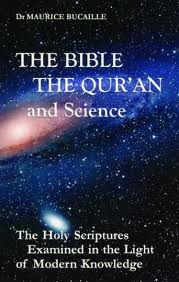
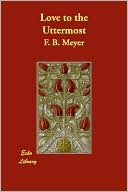
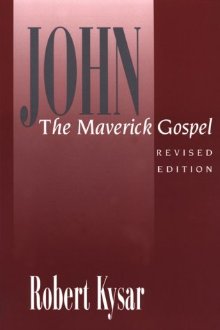
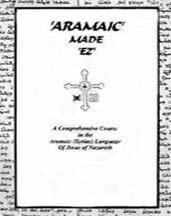
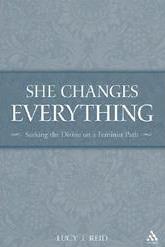
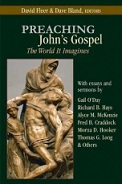
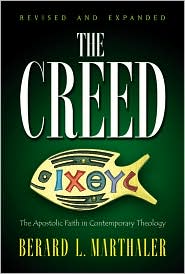
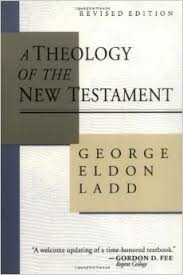
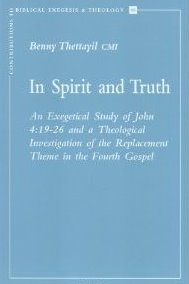

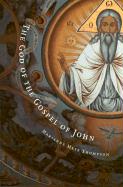
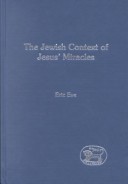
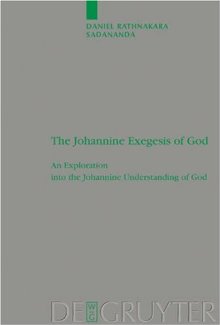

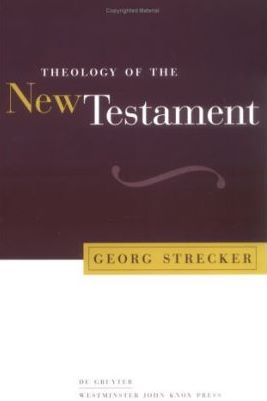

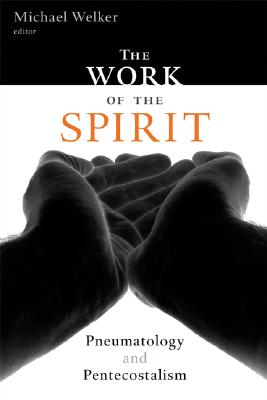
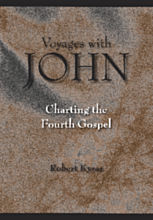
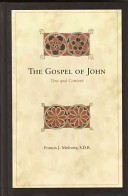
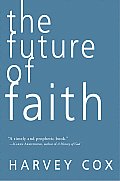
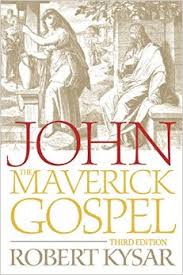
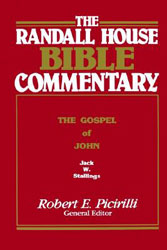

"Jesus therefore predicts that God will later send a human being to Earth to take up the role defined by John .i.e. to be a prophet who hears God's words and repeats his message to man.”
M. Bucaille, The Bible, the Qur'n, and Science
"And when Jesus foreannounced another Comforter, He must have intended a Person as distinct and helpful as He had been.”
F. B. Meyer, Love to the Utmost
"The Paraclete has a twofold function: to communicate Christ to believers and, to put the world on trial"
Robert Kysar, John The Meverick Gospel
"But She—the Spirit, the Paraclete...—will teach you everything.”
Danny Mahar, Aramaic Made EZ)
"Grammatical nonsense but evidence of the theological desire to defeminize the Divine.”
Lucy Reid, She Changes Everything
"The functions of the Paraclete spelled out in verses 13-15... are all acts of open and bold speaking in the highest degree.”
David Fleer, Preaching John's Gospel: The World It Imagines
"The reaction of the world to the Paraclete will be much the same as the world's reaction was to Jesus.”
Berard L. Marthaler, The Creed: The Apostolic Faith in Contemporary Theology
Bultmann calls the "coming of the Redeemer an 'eschatological event,' 'the turning-point of the ages.”
G. Ladd, A Theology of the New Testament
"The Paraclete equated with the Holy Spirit, is the only mediator of the word of the exalted Christ.”
(M.E. Boring) Benny Thettayil, In Spirit and Truth
"The divine Paraclete, and no lessor agency, must show the world how wrong it was about him who was in the right.”
Daniel B. Stevick , Jesus and His Own: A Commentary on John 13-17
Stephen Smalley asserts that "The Spirit-Paraclete ... in John's Gospel is understood as personal, indeed, as a person.”
Marianne Meye Thompson, The God of the Gospel of John
"The Messiah will come and the great age of salvation will dawn (for the pious)"
Eric Eve, The Jewish context of Jesus' Miracles
"The remembrance is to relive and re-enact the Christ event, to bring about new eschatological decision in time and space.”
Daniel Rathnakara Sadananda, The Johannine Exegesis of God
"The Spirit acts in such an international situation as the revealer of 'judgment' on the powers that rule the world.”
Michael Welker, God the Spirit
The Paraclete's" appearance means that sin, righteousness, and judgment will be revealed.”
Georg Strecker, Theology of the New Testament
"While the Spirit-Paraclete is the true broker, the brokers they rely on are impostors.”
T. G. Brown, Spirit in the writings of John
"The pneumatological activity ... of the Paraclete ... may most helpfully be considered in terms of the salvific working of the hidden Spirit.”
Michael Welker, The work of the Spirit
"The pneuma is the peculiar power by which the word becomes the words of eternal life.”
Robert Kysar, Voyages with John: Charting the Fourth Gospel
"The gift of peace, therefore, is intimately associated with the gift of the Spirit-Paraclete"
Francis J. Moloney, The Gospel of John
"This utopian hope, even when modestly expressed, links Jesus and the prophets to a much wider history of human longing.”
Harvey Cox, The Future of Faith
"Because of the presence of the Paraclete in the life of the believer, the blessings of the end-times—the eschaton—are already present"
Robert Kysar, John
"They are going, by the Holy Spirit's power, to be part of the greatest miracle of all, bringing men to salvation.”
Robert E. Picirilli, The Randall House Bible Commentary
"The Kingdom of God stands as a comprehensive term for all that the messianic salvation included... is something to be sought here and now (Mt. 6:33) and to be received as children receive a gift (Mk. 10:15 = Lk. 18:16-17).”
George Eldon Ladd, A Theology of the New Testament
Disclaimer: Our material may be copied, printed and distributed by referring to this site. This site also contains copyrighted material the use of which has not always been specifically authorized by the copyright owner. We are making such material available to our readers under the education and research provisions of "fair use" in an effort to advance freedom of inquiry for a better understanding of religious, spiritual and inter-faith issues. The material on this site is distributed without profit. If you wish to use copyrighted material for purposes other than “fair use” you must request permission from the copyright owner.